#but when she references not being able to live among people for fear of a crusade—
Text
On Ruakh.
Lux Aeterna, the kingdom Ozma and Salem had built together, was situated in the foothills of what is now the contested border between southern Mistral and the Palash region. Salem fled east after the kingdom’s violent collapse and ultimately came to a vast, arid expanse of grassland known today as the Taiyin Steppe. There, she buried herself: literally found a cave, laid down, and did not move for centuries.
About six hundred years later, a faunus boy called Irem found her. He was thirteen, and he hailed from a nomadic group—a deme—which had recently been decimated by human rivals; Irem had been among the youths captured and enslaved by the raiders, and after two grueling years of mistreatment, he had slain his master, stolen the man’s fastest horse, and escaped into the night.
All he had meant to do was hide in the caves from his pursuers until nightfall. Instead, he found Salem—far from an intimidating figure by then: emaciated and barely conscious, her flesh so fragile after centuries of stillness that it shredded like wet paper at the slightest movement. When Irem looked upon her, it did not occur to him to feel afraid; he felt only pity and profound concern.
He decided to stay with her. Help her, if he could. She did not speak any language he recognized, but when he offered her half of what little food he had, he saw a faint spark of hope catch behind her eyes as she reached out to take it.
The pair stuck together from then on, gradually learning each other’s language and piecing together their respective histories as they roamed the steppe. Salem grew very attached to him; he began to call her mother.
Then, about five years later, they were found by Irem’s old captors. The human warriors did not recognize him as the boy who had once killed one of their own, but they did see an able-bodied young man and a monster; they attacked, intending to slay the witch and capture the youth.
Not a single warrior survived.
After that massacre, they gave those who remained a choice: gather what they could carry and leave unharmed, or stay and live by the rule of Irem and his mother.
Most chose to stay.
Every enslaved person in the deme—whether human or faunus—was immediately freed, and the livestock of those who had owned them was immediately portioned between them. The dead warriors were given proper funeral rites and, with them, the brutal cruelties of the past were to be laid to rest too.
That was the beginning of Ruakh.
Irem would eventually take the name Samandar Khan. Under his rule, the deme grew stronger and swiftly became the dominant power on the steppe—not by conquest, but by brokering peace with grimm hordes and demes alike.
(Of course, it is rather difficult to say no to a khan whose favorite steed is a grimm.)
Ruakh lasted for some three hundred years: a khanate comprising myriad demes of humans and faunus living alongside thousands of grimm hordes, spanning the Taiyin Steppe from the western mountains to the more fertile plains far to the east. Salem never staked a claim of rulership, though she did receive a say in the assemblies to elect new khans. Mostly, she came and went as she pleased, sometimes among grimm and sometimes among people.
Owing to her immortality, her grimmness, her presence in the story of the khanate’s origins, and her reputation as a teacher of magic, Salem gradually came to be regarded as a god. She was mythologized as the Witch-of-the-Wilds, a god of storms and fire, witchcraft and war, death and rebirth—a prominent deity in the Ruakhian pantheon, but far from the only one.
However, nothing lasts forever. West of the mountains and far to the north, the young kingdom of Mistral had been pushing its borders ever further south, and although the mountains had long prohibited conquest of the steppe, the invention of airships opened the eastern frontier to the empire.
In Mistral, in those days, grimm were thought to be demonic spirits who preyed upon humans and infested the bodies of the slain, reanimating them as faunus. When rumors of Ruakh began to flow north, they inspired first panic, then hatred. The steppe was not desirable country, unsuitable as it was for farming and crawling with grimm besides, but that did not matter: terror of the grimm and religious zeal made the only arguments Mistral needed to justify a conquest.
Brutal, ugly warfare followed.
Ruakh held its own for many years, bolstered by the grimm—who were far more numerous than the khanate’s people and the empire’s armies combined—and by Salem’s raw power. The mountains and the vast steppe gave the advantage to the Ruakhian defenders, whose horse archers gained fearsome reputations among the Mistrali infantry.
For a time, it seemed as though the campaign would be forced back in the end.
Then Mistral found a powerful champion of its own in Kawayanagi Asaki, a young man of common birth who claimed to have received the blessings of the gods to put an end to the scourge. He demonstrated awe-inspiring magical powers, and the emperor sent him to the front without hesitation.
It was the first time Salem had seen Ozma in almost one thousand years, and meeting them again on the field of battle in a war of undeserved persecution broke something in her. That day was not the fall of Lux Aeterna all over again: it was far worse.
Ozma had not yet sacrificed their divine gifts—they would do so in their next life—nor found the lamp of knowledge. Asaki possessed the limitless might of ancient magic and nine lives’ worth of mounting desperation burning with the conviction that Salem could be destroyed. Salem, meanwhile, fought for a land and a people she had lived with and loved and learned from for three hundred years.
When they dueled in Lux Aeterna, they had ripped the castle down on top of their own heads and burned each other alive. This time, they met as opposing forces of nature. The mountains shook and the sky rained fire and the earth opened like a great maw to swallow the armies of Mistral whole; but Asaki was the better fighter, and she lost ground slowly but steadily as he advanced with what remained of his force.
So catastrophic was the scale of the battle that by the time Salem managed to kill him at last, the steppe had been utterly destroyed by fire, quakes, and a volcanic eruption.
The surviving Ruakhians were few in number. Although they begged her to stay, fearing what would become of them without her protection, Salem looked upon the charred husk of what had been the happiest time of her life and decided that she could not live among people ever again. Not if this was what Ozma would do if she tried.
But neither could she abandon the few people she had left, so Salem made them an offer: far away, on the other end of the world, she knew of a magical oasis protected by impassable expanses of uninhabited desert. It would be different from the life they had known, but she could take them there, and they could live in safety without her.
Most of them agreed.
And that was the beginning of Vacuo.
In the modern day, Ruakh is a quasi-mythical lost civilization—think in the vein of Atlantis. The Taiyin Steppe is very sparsely inhabited, still torn up and prone to quakes and volcanic activity.
Unlike the very short-lived kingdom of Lux Aeterna, Ruakh endured for hundreds of years; Ozma couldn’t erase it from history, but they did succeed in muddying the waters enough to create widespread uncertainty among historians as to whether the khanate truly existed as described in the sources. (Grimm have foiled every effort to mount archaeological surveys of the region.) The legend of Ruakh a favorite of occultists and conspiracy theorists, and better known to faunus than to humans.
Descendants of the Ruakhian survivors Salem brought to southern Sanus still live in the Vacuan desert, and although their culture has dramatically evolved in the three thousand or so years since, there are traces of Ruakh to be found even now in stories of an ancient journey into the unknown, a paradise promised by the gods and ripped away by human hands, and indomitable will to survive.
#MAIDENS AND KINGDOMS ( hc. )#THIS DARK THING THAT SLEEPS IN ME ( hc: salem. )#FOND HEARTS CHARRED AS ANY MATCH ( hc: ozma. )#[ yeah.#there are two things that#salem never talks about.#one is her daughters.#the other is ruakh.#but when she references not being able to live among people for fear of a crusade—#ruakh is what she means. ]
1 note
·
View note
Note
What are the biggest fears of the townspeople in Stardew Valley?
Ok, this is a very interesting question. I tried to take into account the canonical fears of people (the same Abigail and Harvey), as they have dialogues that reveal their fears. Thanks for the ask, dear anon, and enjoy!
Warning: there are references to various phobias as well as sad and unpleasant moments. There is no detailed description but still it is worth warning, it may be unpleasant for someone to read.
Rats. Haley is terribly afraid of rats. Huge and scary rodents almost the size of Haley's handbag ... Eeeeeeep, gross!
To be buried alive in a pile of stones in the mines, to die of starvation or wounds, so that later your soul wanders through these very mines like a damned spirit... For Marlon, this is probably the worst fate that he would not wish even an enemy.
Acrophobia made it impossible for Harvey to follow his dream of becoming a pilot, and to this day he has to face problems due to his fear of heights.
Kent fears that the war with the Gotoro Empire will knock on the door of Stardew Valley, the home of his family and friends.
For Shane, the worst thing is if something happens to his dearest niece. Given that they live close to the forest where wolves and bears live...
Clowns... Penny stays away from the man with the clown make-up at every Stardew Valley Fair.
No matter how much Clint grumbles about his work as a blacksmith and about Pelican Town residents, his biggest fear is being alone. Especially dying alone.
The mere thought of going to the doctor brings panic to poor Vincent's face. And if he needs to get a flu shot, then all the glass and windows will crack from loud crying.
Needles. Bummer, why does Sam need to take medicine not in the form of bitter pills, but as an injection? Of course, he's not as scared as his younger brother, but his mom said that Sam cried a lot louder at the doctor's appointment when he was a child.
Poor Jas is terrified of the dark and won't be able to sleep in her room without her nightlight and plush bunny.
Every day, the Wizard needs to check the seal on his wife's hut, for he is afraid that she, in a fit of revenge, will still be able to unleash her wrath on the innocent inhabitants of Stardew Valley. If this happens, he will never forgive himself.
Sebastian has always loved watching the sea, but swimming in the sea - no thanks. One unpleasant incident in childhood, in which he almost drowned in sea water, discourages the desire to swim even in adulthood.
A huge crowd of people is what Leah fears the most, because she knows many true stories when an uncontrollable crowd in a panic can accidentally knock a person to the ground and trample.
Once Pierre visited an exhibition of vintage dolls in Zuzu city with his wife and said to himself: never again. Why dolls? He himself cannot answer.
Snakes for Marnie. And it doesn't matter if they're poisonous or not. Just the sight of a snake makes her break out in a cold sweat.
Abigail is a brave girl, but spiders have always been her weakness. And the fact that there are monster spiders in the mines... Brrr!
No one argues that good-natured Emily loves animals very much, but the sight of a huge predator like a bear or a pack of wolves causes her only piercing fear. And no wonder, these are wild animals.
For Jodi, it's the fear of food poisoning. An even greater fear is that you will be poisoned by your own cooked food. Even more - if her husband and sons were poisoned at the same time. She always checks five times to see if there are any accidental insects or something else in the dough or in the soup.
Who would have thought that Elliott has signs of lyssophobia. Although he is a very creative and philosophical person, among such people there are often individuals who are afraid to go crazy.
More than once or twice Demetrius refused Sebastian and Mary to have a puppy in the house. And this is not because he is harmful, but because he is terribly afraid of them (the dogs, not the kids).
George is afraid of what is inevitable and, sooner or later, will come to everyone without exception - old age.
It's not for nothing that Robin scolds her husband strongly when he almost set a fire in their house due to an unsuccessful experiment - the prospect of being burned alive in an inexorable flame in his own house scares the town carpenter the most. She treated the wood of their house for the sake of seriousness to minimize the possibility of a fire.
Maru can't stand honey, and that's because honey is the sweet nectar from honeycombs, one of the triggers of her trypophobia.
Sea sirens strike terror into the heart of every sailor, and Willy is no exception. An insidious angelic voice that cannot be resisted will pull you and your ship to the bottom, to be eaten by fish. Some mermaids are kind, but the old sea wolf knows what these sea demons can be.
There is no greater nightmare for Alex than the return of his biological father to the Pelican Town.
Somehow, I got the feeling that Lewis has signs of technophobia. All these gadgets, computers and newfangled smartphones cause him irritation, and then fear when he is forced to use one of them.
Poor Evelyn's heart was broken when she buried her daughter, and she fears more than anything that she will have to bury her grandson too... No mother/grandmother should bury their precious children.
The fear of tall objects, buildings, statues is one of the reasons why Gus decided to settle in a calm Valley, and not work as a cook in a huge metropolis.
#stardew valley#sdv#sdv headcanons#sdv community#sdv shane#sdv alex#sdv sebastian#sdv sam#sdv elliott#sdv harvey#sdv penny#sdv maru#sdv emily#sdv haley#sdv leah#sdv abigail#sdv kent#sdv jodi#sdv marlon#sdv marnie#sdv lewis#sdv gus#sdv wizard#sdv rasmodius#i can't tag everyone I'm sorry
268 notes
·
View notes
Note
I can only imagine how sizzy will be like as parents any thoughts on that?
so, so many thoughts.
i am so adamant that simon and isabelle would be some of the best parents. the way they both show their love in their actions, and how together they'd have the protective and self-sacrificing nature of parenting down pat.. the way they have experience with kids from years of babysitting their nephews, and for izzy.. from being there as max grew up.. the way they would both harbor just enough trepidation when approaching parenthood that it would make them just that much better at being parents, if that makes sense..
the way i see it, izzy didn't have the best examples for parents. they love(d) her, yes. but they also weren't all that good at being the adults, and their problems always seemed to come before those of their children. she took on the strength of her parents, but i think as much as izzy had to learn that romantic love isn't necessarily a weakness, she'd have to do similarly with parenthood. because god this child in her arms could break down every brick of the fortress she's built around herself. there's just such an innate and all-consuming love there. and it will obviously scare her, but by the time she and simon have kids, she's learned that there is strength in giving your entire heart up, too. she's learned that the barriers her parents may have put around their love are exactly what she doesn't want to pass on, even though it scares her.
meanwhile, simon.. simon knows exactly what it feels like for unconditional love to be tested and come up wanting. and i believe he will fight tooth and nail to never have his kids feel even the slightest bit uncomfortable at home. i do think that simon would have a decent amount of doubt during izzy's first pregnancy and the early months of that child's life, though, due to the early loss of his own dad. on the one hand, you have the lack of a father to refer back to, both in memory and as a means of advice--thankfully, luke exists, and has existed as a father in simon's life for a long, long time. but on the other hand, simon is all too aware of what it feels like to lose a father too soon, and with the heightened mortality rate among shadowhunters... instead of letting that fear of being forced to leave his child(ren) behind control him, though, he decides to just be that much more intentional with the time he is given with them.
this idea of intentionality is absolutely something izzy would present to simon, as it's one of her greatest regrets when thinking back to max's childhood, despite her being a child all that time as well. it was was a resolution that would have a concluded a conversation i think she had with herself years before she and simon even got married, as she considered whether or not she wanted kids at all. i think she would have gone through something of a "what's the point?" phase before that she doesn't want simon to endure after all he himself had gone through.
and so they're intentional. they have family reading time every night they are able to. simon dm's kids dnd games. they eat meals together. they have game nights and movie nights. izzy sings to them when they cry at night, like her mother used to. they host sleepovers with the cousins. izzy lets them try on her heels for fashion shows. they encourage their kids' interests outside of shadowhunting; this one likes to sing and that one's learning to sew. they take them trick-or-treating in the best nerdy constumes. they don't shelter them from the world, but rather show them the lives and the people they'll be protecting one day. i love you's are abundant, as are hugs and kisses and tickles and teasing.
in my mind their household is the perfect mix of cool and warm. cool like adamas and the truth and the spring. and warm like fire and dark eyes and fresh baked cookies. and maybe it smells like cookies too, like whatever secret recipe they finally got right and refuse to stray from bc they just know they'll mess it up.
#i have clearly thought about this A LOT#sizzy#tsc#sizzy hc#anon <3#asks#simon lewis#isabelle lightwood#tmi#headcanon
43 notes
·
View notes
Text
Fanmade DRDT Playlist Explanations
Hey everybody! About a week ago, @accirax and I made this post about a character playlist we made for DRDT. It was in a randomized order in case people wanted to take guesses and figure out whose song was whose. We’re going to be giving out the answers now, but if you want to take a shot at placing any of them, feel free to take a look before looking at our answers! They’re written out beneath the cut.
In addition to just saying which songs were intended for which characters, Accirax and I decided to write out explanations for each of the songs in the same way that we did for the official DRDT playlist. So, for anyone who saw that a while ago, it’ll be a fun little throwback. Any explanations will be preceded by an A or a V depending on which one of us wrote it.
Also, spoiler warnings for DRDT through Chapter 2 part 1. Sections with specific content warnings will be flagged, but in general, content warning for murder and death.
Okay, onto the songs!
Homunculus by Trickle: Levi Fontana

A: Homunculus is a song about trying over and over again to create a better version of yourself to escape the parts that you hate. Personally, I think that it relates to Levi and his character themes pretty well. Levi is always looking to the people around him to figure out how to act and what the “right” thing to do is. When he messes up, like with getting fooled by Arei or threatening Ace, he’s filled with regrets, and turns to others to help him right his wrongs.
Presumably, it’s due to his estranged family that made him act this way. He may have been able to get away from them, but will he ever be able to get away from himself?
Realized in my last life
That I hate the light
So I keep running
And running
I’m trying to hide
Levi’s struggles to converse with others and to trust himself are the results of his own low self esteem. In his secret quote, he talks about “his heartlessness,” and while many people speculate that he is a “killer without remorse,” his worries about not being a good person are sort of remorse about not feeling remorse over doing bad things, if that makes any sense.
I'm broken, torn, and tattered
I'll never be full again
Many of Homunculus’ lyrics feature the singer berating themself for various reasons. They worry about not being up to par with what people expect of them, not fulfilling their own expectations of themself, and being a shell of who they should be, among other things. These premises may be similar to how Levi feels as someone who wants to be a reformed hero, but fears their villainous origins are too powerful to ignore.
Also, if the popular theory that Levi is involved in the Chapter 2 murder (whether as the sole blackened or as an accomplice to someone else) holds true, the singer’s resolution to do better “in their next life” could hold additional meaning to Levi.
So maybe in my next life
I'll finally find
Find a way to wash away all the shame
To erase and wash away all the shame
Either he’s about to die, so the next life is the only chance he has, or he’s managed to screw this life up so badly by being involved in a murder that his morality might be unsalvageable. Even though he would continue living for at least one chapter in that secondary case, the quest to continue reforming himself might seem too insurmountable.
Hate It! Hate It! Huge Ego! by KurageP: Arei Nageishi

V: Here we are with Arei! This song cold opens on some lyrics that fit Arei pretty obviously:
That small girl, I just hate her!
She always acts like a nice person.
This refers to Eden. Arei picks on Eden, but it’s because Eden is a very good person in Arei’s eyes. She doesn’t believe that’s something that can exist, and she takes out her frustration that she isn’t allowed to be nice on Eden.
Arrgh! I want to be loved! I want to be loved!
Similarly to how we gave Shunran to Arei “they say that praying to be loved is a sin. It has such a sweet scent” Nageishi, I generally associate feelings of wanting to be loved with Arei. Additionally, the frustration and anger present in this demand to be loved makes me think of Arei; she wants to be loved, but doesn’t know how to get it, and that frustrates her.
Just like that kid did to me,
I just crush the garbage underfoot, right?
This line is probably the best for Arei in the song, given that it directly ties into how she developed her worldview. Arei was once nice (like Eden), but her sisters bullied and abused her until she no longer could be. She learned to stand up for herself by mimicking her behavior and pushing them and others down. She “crushes the garbage” of other people under her foot, just like how her sisters did to her.
I hate humanity!
All they do is flock together.
I try to pay attention to others’ feelings,
But I just get completely ignored!
Arei wants to be a caring person, but she doesn’t let herself be anymore. She used to “pay attention to others’ feelings,” like Eden does, but her attempts at solving the situation peacefully were always ignored. Because of that, she learns to hate humanity.
I’m the most special of them.
I need people to understand me!
Arei builds herself up as a queen bee type and praises herself about being the best (bowler and in general), but she also wants people to understand why she’s cruel the way that she is. Deep down, she wants to be nice, even if she believes it to be impossible. That understanding is something she searched for in David.
I didn’t do anything.
But, but, but, but, but…
Aah, I want to be forgiven, I want to be forgiven.
I’m so lonely.
This song adds in a moment of sincerity, showing the remorse that the singer carries and how they feel alone. Again, I think this reflects how Arei thinks at times rather than how she acts. However, it quickly returns to the same, full-power chorus as before, showing that Arei won’t allow that loneliness to actually change her base persona or get her down; she wants to be loved, but she’s still the same strong, confident Arei at the same time.
I don’t even recognize my own face!
Shoutout to J/Arei swap theory on this line if that ends up being true!
A: While I overall agree with the interpretation of the opening paragraph(?) best fitting Eden, while reading through Venus’ analysis, I came up with an alternate interpretation.
That small girl, I just hate her!
She always acts like a nice person.
Is she just gonna act like I don’t notice?
Those! Eyes that look down on me!
These could be Arei’s opinions about herself in the past. Arei hates her past self for being small and weak, and thus leaving herself vulnerable to her sisters’ abuse. Why didn’t she see how pathetic she was being? And why would she even have the thought that her past self might hate the person she’s become…?
That popular girl, I just hate her!
She only likes fashion,
Abruptly talking like it’s her business.
So shallow. Shallow, shallow, shallow.
And these are Arei’s opinions about herself in the present. Because, come on, you can’t watch that Chapter 2 breakdown scene and think that Arei is actually as confident in herself as she pretends to be. Arei may now be a typical queen bee who enjoys fashion and girly things, but that doesn’t actually make her any stronger or cooler. She cuts into conversations to inject her own hateful comments, shallowly feeding into her own worldview. I don’t know if Arei in the story would actually recognize that she has any of these feelings, but I think they could be there to be noticed had she lived longer.
Also, Milgram fans, rejoice in the bullet you dodged that we didn’t wind up giving Arei Reversible Campaign. Even though we didn’t like giving her literally the Mikoto cover of it, we almost did before we remembered that Huge Ego existed. Like, seriously, what would have been up with that? Arei should’ve been Mu, if she had to pick a Milgram character…
Please Play-Bite by Pinocchio P: Nico Hakobyan

A: Remember that scene in Chapter 1 when Nico spent an hour just reciting tongue twisters to MonoTV? In my opinion, that was the best written scene in all of DRDT. Ah, memories. (/j)
Anyways, if you get past the most obvious premise of the song, “Pinocchio P flexes his tuning and songwriting skills by making Miku recite a bunch of tongue twisters” (which does not apply to Nico at all), the rest of the song makes a lot of sense.
My head is full of anxiety
God, I’m begging you to [finish] me
I bit my tongue again (Oh no)
Due to their anxiety (and perhaps other neurodivergence), Nico struggles to communicate with others on their/society at large’s terms. They hate talking to people because people always react negatively to what they have to say, even if they’re trying to be nice.
In the song, I think that “I bit my tongue” is more literal– the singer messes up saying the tongue twister, and with their tongue in a nonstandard position, they accidentally chomp it. In a metaphorical sense, this could signify how Nico can’t keep up with a “normal” conversation, and keeps having things come out wrong if they just speak off the cuff. However, there’s also the more traditional interpretation of “biting your tongue,” which is refraining yourself from saying something that you want to say for the good of the situation. There have probably been a lot of times in their life that Nico has wanted to say something, but has stopped themself from doing so because they don’t want to cause trouble.
The song has a lot of references to not understanding what people are doing or saying.
Isn’t it difficult to live a normal life, ouch ouch ouch
The sensation that enthuses the young and the old
I’m not quite understanding it, oh what do I do
Kind words sound distorted to me
I don’t really know what the section about loving someone at the end would mean, though. You could extrapolate it to be about Rose, and how she used to like Nico before losing some faith in them now. However, any change of heart Rose may have had wasn’t because Nico was bad at communicating– she doesn’t care about that– it’s because Nico went behind her back to steal her turpentine and nearly kill Ace with it. So, who knows.
Also, shout out to this lyric for clearly being about Ace.
My neighbor eats [persimmons], he’s from Planet Complaint
I’m going to start saying that Ace is from Planet Complaint now. Thanks, Nico.
Last Score by Sekikomi Gohan: Eden Tobisa
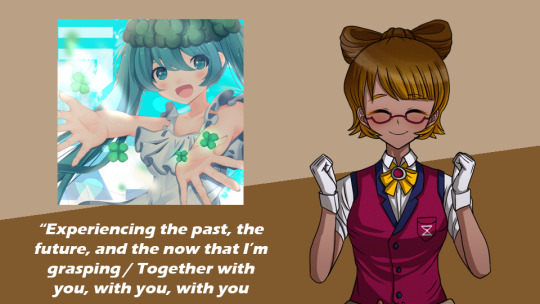
V: This is a very positive and loving song, which is fitting for Eden. After all, she’s someone who cares a lot about her friends and family, and she tries to spread cheer and positivity to those around her.
A face full of tears doesn’t fit your profile really that well
I let go of both my worries and anxieties, happy day! Yeah!
This voice of mine will be with you
No matter where you go
There are also a lot of references to time, which, obviously, fit in with her role as the Ultimate Clockmaker.
I’m stricken by my valuation of time
The traffic light stays red, unchanging
Experiencing the past, the future and the now that I’m grasping
Hundreds, thousands of years, or even an eternity, in this endless life of mine
However, it’s the combination of those two things that make a narrative that I think fit Eden. Her secret quote– “You can never go back, no matter how hard you try”-- implies a sense of desperation to return to the past, something that ties into the themes of her Ultimate talent. When paired with her secret, “Ever since you kissed her, you were afraid your sexuality would ruin your friendships,” it becomes clearer that there’s someone in the past who she loves.
If you combine the two, you can come to the conclusion that Eden longs for the past, partly or entirely because of the person she kissed. This song is one of longing for a past relationship.
The love/sorrow that we amassed
Is proof of my existence with you
Even my dreams, my wishes, and my painful memories as well
Everything, everything, everything, I was with you
This interpretation works with a general longing, which I’d argue is present in Eden’s character no matter what. Accirax and I, though, along with some others, believe in Eden Chapter 2 culprit theory, with the belief that her motive is to reunite with the people she’s left behind, notably the girl she kissed.
If that is the case, there are also song lyrics that would allude to her taking direct action to get back to the life she left behind.
The reason why I can run without feeling down
Is because I’ve known love
I’m overturning the notion that our parting is inevitable
Either way, though, I think that this song fits Eden as someone with a lot of love and desire for others’ happiness that guides her actions.
Change by Monkey Majik: Hu Jing
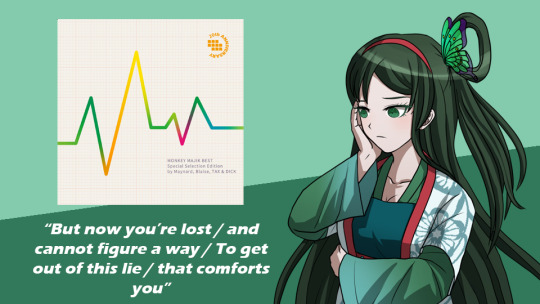
CW: Suicide for this section!!
V: Okay, so this one is a lot more speculative. Like, obviously we know some things about Hu, but a lot of what I’ll be talking about is about where I believe her character is headed/what I think we can determine about her. For what it’s worth, I’ll be assuming that the hopeless child secret– “Dying once wasn’t enough, so you attempted suicide three times”-- is Hu’s. (This analysis by @1moreff-creator focuses on Min, but it’s a lot of why I believe Hu’s secret to be this.)
So, that being said, I’ll be speculating a lot about Hu’s mental state, so… my bad if I get anything wrong.
You had your wishes but you threw them away
It made you happy yeah for more than one day
But now you're lost and cannot figure a way
To get out of this lie that comforts you
This is, in my opinion, about Hu’s transition from being the “hopeless child” to where she is today, in the killing game. Something must have changed to aid her mental state (could easily be something she “threw away”), which fits with making her “happy” (not actively suicidal, at least from what we’ve seen). However, now she’s here in the present, and she’s not sure what to do. What should she do to move forward, especially in this context?
You'll never change if you keep running away
I’m not sure exactly what Hu feels she’s running away from, but I feel alright saying that she is, given her secret quote: “I want to pay for what I’ve done. But even then, I still want to live.” Hu wants to be someone different and make up for something (or, if this occurs in the future of the series, to be someone different from the person who takes whatever action this describes), but she doesn’t know how.
Brothers on the top pressing all the melodies
Takatantan!!! Sweet sound of the shamisen
Tsugaru style if you know where they're coming from
I don’t know much about music, and while I assume these lines wouldn’t successfully relate to zither playing specifically, it’s still true that the more traditional sound of the song and the references to music make me think of Hu’s talent.
Wouldn't it be nice if the whole world got along?
This relates to Hu’s desire to have everyone get along and be on their best behavior. She wants everyone in the killing game to work together peacefully, but that’s difficult to pull off, given the stronger personalities in the group.
I need a change
'Cause it's all gone wrong for me
Somebody else to lead me now
(I want) somebody else to lead me now
This can definitely also relate to Hu’s dynamic with David; she saw him as a co-leader, someone else who could help her keep the more unruly personalities under control. However, with his heel turn, it’s plausible to say that Hu would be looking for “somebody else to lead her”-- someone else to support her views and to make her less alone in the struggle to keep people under control.
The rest of the lyrics I’d have to interpret based entirely on my own predictions, but I’ll give a quick shot at it:
Sing them your song
You'd be surprised how many people wanna hear what you're saying
I suspect Hu will, after dealing with the fallout of David, seek to try to enact that same stability onto the group. Some people, I think, will be receptive, and Hu will realize that what she has to say has meaning.
Maybe! Who knows! I still think this song fits Hu’s vibes.
A: Wait a minute… what’s that?
Apples are red, but taste
The same as green, wooo!!
Is that a hint about Color Theory? Are red and green the same person? Is Monkey Majik trying to tell us that Hu is confirmed for the green color, but also the red color? Does that mean that Hu is the mastermind? Is this–
CW: Suicide over!
Get Chemical by Polite Fiction and Audiodile: Charles Cuevas
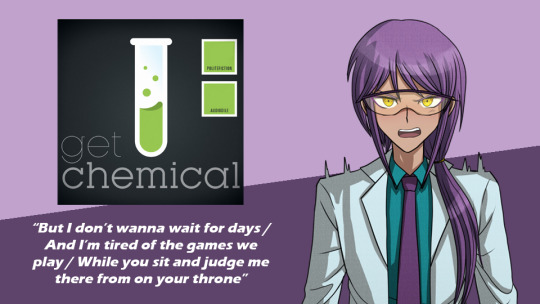
V: Okay guys, I promise, this song makes sense beyond “get chemical.” I know it’s a weed song. But not for Charles. If you ignore the weed part it’s a Charles song. Trust.
A: It’s not about weed. Ignore the weed. Pretend it’s not there. It’s Charles time.
V: Okay, but in all seriousness, this song fits him really well. The song moves him through his character arc chronologically, so that’s how I’ll be looking at the song’s lyrics. The song starts off with Charles’ more no-nonsense worldview.
There's a time and a place
For wasting space
And if you're not coming home
Then it's a slap in the face
It's nothing worth doing
If you just can't do it alone
Charles starts out not wanting to “waste time” or bother with any of the other students. He thinks the only things worth doing are by himself, so that’s what he does.
But I don't wanna wait for days
Charles then gets tired/bored of being by himself (as he warns Teruko will happen to her at the start of Chapter 2). He starts getting impatient, and thus ends up spending time with some of the other students.
And I'm tired of the games we play
While you sit and judge me there from on your throne
Charles gets frustrated, though, because he feels that no one takes him seriously. Notably, Whit and Teruko make fun of him a lot. He feels judged by the others. However, once he tells Whit this in the bonus Chapter 1 free time, he starts to make progress; Whit understands him, and thus stops judging him so harshly.
Put the train wreck on display
Marvel and wonder how it sways
Wear that disapproving stare right through the phone
Then, the murder happens. Xander purposefully triggers Charles’ hemophobia to put him out of commission, and Charles then has to be visibly out of it for the entire Trial. Though Whit tries to preserve his privacy, he eventually has to reveal why Charles is acting up. Thus, Charles, the “train wreck,” is on display for everyone to “marvel” at.
Is it a trending feat or a single case
Is it dignity if it gets misplaced
Am I justified in adopting casual tones
Charles, after the first Trial, formally becomes friends with Whit, as well as generally leaning towards being friendlier with the group. Thus, while “adopting casual tones,” AKA being friendly, might be a “single case” (just Whit) or a trending feat (befriending everyone). Previously, not befriending people and acting above them was part of how Charles displayed his dignity, but after the first Trial (in his eyes) stripped him of that dignity, he has to reposition himself.
Well pinkies up, 'cause it's in good taste
And if you can't throw down then you know your place
There's a hundred different ways that this could go
After the first Trial, Charles has to confront the fact that he isn’t reliable. Thus, these lyrics to me best fit him giving Teruko the secret motive he received (Eden’s). He “knows his place,” realizing that he could easily be incapacitated again, so he does what he can. He plans for contingencies.
And I am still quite functional when I am prone
This line switch up fits the second Trial well. Charles can’t investigate fully or contribute in the way he’d like, given that he can’t actually enter the Playground or look at Arei’s body, but he can still be a major benefit to the students in the Trial. He can find evidence elsewhere and be a logical ally for Teruko. He even got to cut in to help her in the last moment before the hiatus.
Obviously, I can’t really apply the lyrics chronologically beyond this point, but I can still point out the things that make sense.
Hitting bottom's so much better when you're stoned
I can’t deny the weed allegations on this one, but if you just replace stoned with gay with friends it makes sense. “Hitting bottom’s so much better when you’re surrounded by a support system.” That kind of thing.
Most of the rest of it is just the chorus, which is pretty easy to see the connection. I mean… the Ultimate Chemist definitely gets chemical. Not in the weed way. And the “upright to vertigo” is sort of reminiscent of Charles’ reaction to his phobia.
Anyways, this is the end of my essay. Get Chemical is a Charles song I promise!!!
Tokyo Teddy Bear by Neru: Arturo Giles
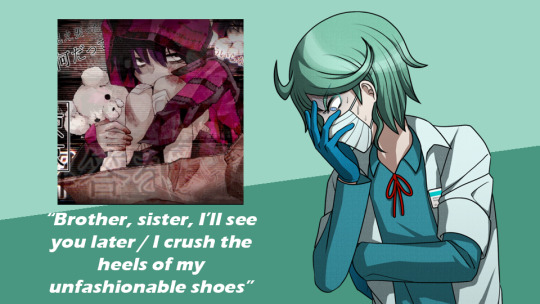
CW: Suicide for this section!!
V: Okay, I’m going to preface this one by saying Arturo was a hard slot for Accirax and I to fill on the playlist. We don’t have any songs that really boil down to “you’re ugly,” so that element of Arturo’s character is out. That means that our best bet was anything that vaguely related to philosophies of fashion/aesthetic, as well as trying to interpret Arturo’s trauma/mental state. That second part is hard, because while we do know his secret– “Your younger sister killed herself because of you. You never should have left.”-- we don’t really know the details or how he reacts to it, other than “badly.” So, take everything here with a grain of salt.
The connection to aesthetics isn’t super strong, but it’s definitely there to be seen.
I crush the heels of my unfashionable shoes
I’ll find some tougher scissors
And cut out my face
With the theming of a teddy bear, there’s even references to cutting/replacing physical features of a living being, which ties into Arturo being the Ultimate Plastic Surgeon. Additionally, this often pairs with parts being “replaced.”
I’ll make a ridiculously sized pattern for it
Anything will do, as long as it serves as a replacement
Please fill in the gaps in my seams
This, again, can relate to plastic surgery. It’s inherently something where you take a physical feature and alter it in order to get a “better” result, which means that you’re replacing the previous feature with a new one. It’s a bit of an angsty description of plastic surgery for Arturo, but it makes enough sense.
However, the lyrics pertaining to family and home are what sell this song for me. While we don’t know a lot about Arturo’s situation, we do know that he “never should have left,” meaning he did leave to some extent. He also clearly feels guilty for his sister Felicity’s death.
I personally theorize that they likely had harsh parents, so while Arturo was able to use his promising career and older age to escape, Felicity had to endure the toxic environment on her own, which eventually led to her death. Thus, it would be understandable that Arturo would want to leave, but would still feel awful about the end result. Either way, though, I think the lyrics can definitely connect.
Mom, Dad, I’m sorry for everything
Brother, Sister, I’ll see you later
Goodbye, everyone; teacher, take care
Arturo is sorry for the situation, but he still leaves. It seems like there’s a specific point in Arturo’s life that would change pretty drastically when “leaving,” so it makes sense if it’s something treated with a lot of drama and severity.
Then there’s this part of the song:
There’s nothing left, nothing left anymore: it’s all torn off
Even my cells seem to disappear into this sea of lint
That’s right, I’m gone, gone, thrown away
I don’t even have a home to go back to
This would read to me as a reaction to Felicity’s death. There’s nothing left of the home he cares about, meaning he’s officially on his own. It’s also a lot of emotional turmoil he’s struggling with, obviously.
I want to complete it, I want to cheat, give me the answer
I can’t change? Do I want to be kept like a pet?
Is it all gone? This isn’t me!
The seams have split and torn apart
This part reads to me as some sort of big reaction to something in-story. It could just be the secret reveal; he wanted to “cheat” by threatening Eden into silence and claiming not to have a sister, but he learns that he can’t “change,” or otherwise escape from his past. How the ending of this song will be interpretable is going to change heavily with where he goes after this reveal, whether it be being the Trial 2 killer (and likely explaining his logic more in the post trial) or continuing to move forward into at least one more daily life.
That’s pretty much all of the analysis for the song, but I’m going to just quickly talk about some aside theories for Arturo!
CW: Body dysmorphia for this section!!
Anyways, while looking at the lyrics of this song, I started wondering how Arturo’s views on beauty and being the Ultimate Plastic Surgeon might’ve tied into his past/Felicity. Arturo clearly developed very strong views on what was beautiful/ugly somewhere along the way, and it wouldn’t be at all surprising if Felicity held some of these views as well.
I think it’s possible Arturo may have attempted plastic surgery on Felicity if she had some sort of body dysmorphia. A lot of people with body dysmorphia try to use plastic surgery to ease their negative thoughts, but it doesn’t usually work, because the issue isn’t their actual appearance, it’s their misperception of their appearance and how it impacts how they believe others see them. Body dysmorphia is also a condition which has a high suicide rate (some studies say 25%+ of people with Body Dysmorphic Disorder have attempted suicide), so that could definitely be part of Felicity’s struggles.
This is also much less specific, but do you think Arturo has ever had plastic surgery or tried it on himself? I kinda just assumed his mask was part of the surgeon aesthetic, but it’s true that we don’t super know what’s under it, right?
Anyways, ramble over! Onto the next song!
CW: Suicide and body dysmorphia over!!
Punching Bag by Set it Off: Ace Markey
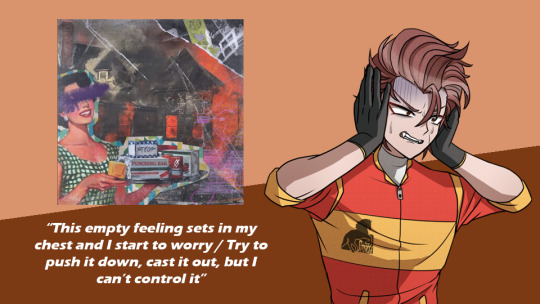
A: And here we have our first Set it Off song! Venus and I listen to a lot of Set it Off music, so it was hard to cut down to just two when we wanted to do a couple more. Rest assured that the two we went with are going to be fitting.
(V: They are my top artist on Spotify ever :D
Also side note, we also like Full Moon by Rare Americans as an Ace song on vibes. The lyrics are less fitting, but like… the Vibes are there)
A: I think the scene that most closely parallels the lines of Punching Bag is the one in Chapter 2 Episode 4, where Veronika intervenes in Ace and Nico’s fighting. To quote Ace, “Is that what everyone really thinks about me? And it’s fine that you drill it into my head over and over again, because you think I’ll forget about it in 5 minutes like you do? … You think I act like this for fun, and then I go to bed and sleep soundly at night, you dumb piece of shit?”
I'm up all night when you think I'm sleeping
People pleasing's never good for your health
I’m sure you can see what I’m getting at here.
V: There’s also the fun part with the “up all night when you think I’m sleeping” that Ace (I’m pretty sure) goes to the Gym and stuff while other people are asleep! Plus, there’s him overhearing the David/Arei conversation. So, in a lot of ways, Ace actually kinda is up all night when other people might think he’s sleeping.
A: People not taking Ace, his emotions and his struggles, seriously is one of the things that infuriates Ace the most.
Punching bag
Just another pot calling the kettle black
Take it out on someone who won't hit you back
'Til we're all as broken as you
Based on what others have told him, he knows that they think he’s a fragile coward whose bark is worse than his bite. How dare they insult him when they’re just as fucked up as he is, if not more?!
So say goodbye to your Mr. Nice Guy
You got your wish, he's rotting in Hell
Even though we are aware that he wasn’t really a nice guy before, this scene (and the one investigating the Gym with Levi) is reflective of Ace’s Chapter 2 declaration that he’s in it only for himself. He’ll be a terrible person if it’s the only thing that’ll defend him from everyone else’s onslaught of attacks.
And, on top of all that, there are a bunch of lyrics that seem to reference damage inflicted on the singer by some kind of string.
Hanging on by the strings that you're pullin'
(So you) cut me down just to push me around
And hope I'd tie a rope 'round my throat
'Til I start to choke
Don’t worry Ace, I’m sure this will never come back to bite you. Play-bite you, even.
So go fuck yourself
Well, that’s not very nice :(
Grave Dancing by David Bays: Veronika Grebenshchikova
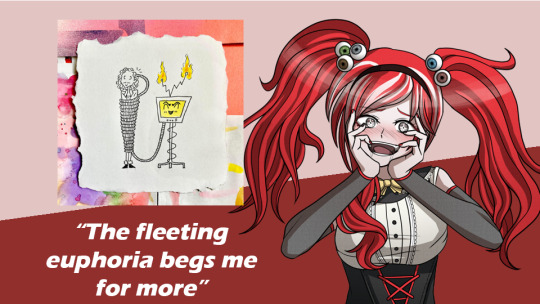
CW: Self harm and suicidal ideation for this section!!
A: This song kinda tracks Veronika’s experiences with boredom, and how experiencing the terrors of the world that make most people cower makes her cackle. We begin with Veronika’s backstory, detailing how she felt before the killing game began. Now, this is based on speculation, but the idea that Veronika has the secret, “you only took on your talent to distract yourself from your incessant need to harm yourself for fun” is generally a pretty popular one. If she really was injuring herself just to feel something, we can assume that she was in a pretty bad mental state.
I stared into nothing completely entranced
A spectacle vortex of mesmeric dance
Millions of voices invite me to jump
Into the pool of the opiate pump
Veronika was lost to her own desires, only focusing on what was fun (the “mesmeric dance”) even when it was putting her in danger (“inviting [her] to jump,” presumably off a high place). However, once Veronika finds horror, she finds that you can’t spell funeral without fun.
I’m dancing on my grave
As my pleasure turns to pain
I waste my days
In this haze
The more I satisfy myself the emptier I am
When most people would be sobbing at a gravesite, Veronika thinks to dance. When Veronika is experiencing pleasure, it’s at the hand of pain, whether hers or someone else’s. Even when she succumbs to her desires to live her life for the sole pursuit of fun, she’ll always be chasing a high that doesn’t exist.
The fleeting euphoria begs me for more
Or, well– not without a killing game, anyways. The “round robin race” and “endless buffet” mentioned in the lyrics could both refer to the killing game, and “a wishful need to want to leave” would be more of a commentary on how people like Xander and Eden keep making plans to end the killing game. It’s her typical psychoanalysis stuff.
Do you remember how to be
I don’t
And you’re all stuck here with me
As we throw away our time
On momentary lives
Veronika seems to know that she’s abnormal (although she frequently forgets it in the moment), and even relishes in it in the presence of people like Arturo or David. Even if she doesn’t remember how “to be” (a normal person), everyone is stuck with her in the killing game, where her opinion holds the most power. The concept of “throwing away our time on momentary lives” sounds like the kind of thing she would say to get under someone’s skin– pointing out how fragile everyone’s life is in order to try to incite murder. Overall, the song just reminds me a lot of how Veronika speaks and thinks.
Entertained forever till we…
DIE
Like… Yeah, that’s Veronika alright. You get it, I hope.
CW: Self harm and suicidal ideation over!!
Hallelujah by Hunter Oliveri: David Chiem

A: Did you know that David… is in a poor mental state?
Everybody is dumb
I'm feeling numb
Hallelujah
While exactly how much David’s “real personality” mirrors what he’s shown us in 2-11 is still up for debate, that infamous episode certainly showed us that there’s something off with how David views himself and the world. Namely, he’s a pretty pessimistic guy who seems pretty cavalier about throwing at the very least his own life away (given that the person who receives votes WILL die, either in a correct blackened vote or an incorrect spotless vote). If you assume that David is not actually the blackened in Arei’s murder, you can also get this line to factor in:
Everyone's got a gun
Let's kill everyone
If the other students use their “guns”– their votes– to kill David, everyone will die. That’s a plan he’s completely fine with… Or, at least, he’s acting like it is. You could also link this line to Xander and his fake gun. Obviously, Xander didn’t actually use his fake gun in his attempt to kill Teruko, but it’s still an acknowledgment of how Xander was a participant given a gun like everyone else, and how he did decide that murder was his best course of action. Betrayals like that are likely part of what gave David this attitude in the first place.
In his breakdown, David also shows his perverse desire to call out the other students for their naive idiotic beliefs in trust and the goodness in humanity. So, you know. Everyone (in the Class Trial) is dumb (for believing in all of the inspirational bs David spews), (David is) feeling numb (to his own survival, as well as potentially still being in shock regarding the state of his career)-- Hallelujah. In the Hunter Oliveri version, the call to Praise The Lord is certainly meant to be sarcastic, and David means the same. In the way that “the Lord” can also imply fate/morality or a powerful establishment, David can be telling those things to fuck off too with his “Hallelujah.”
All of this is probably clear enough. However, what makes me like THIS smugly apathetic song over potential others are the frequent references to telling people how to do things and success. Let’s start with telling people how to do things.
It all means nothing
I'll tell ya something
They'll sell ya something, yow
Now I can't do a damn thing.
And I'll take you out your misery
And now I can't move a damn thing
And I'll take you out your misery
Although the singer is feeling numb and therefore shouldn’t care about their audience, the song is still clearly framed as the singer giving their advice on how to best approach life. “Telling you something,” AKA the wisdom David dispenses in his inspirational speeches, is the exact same thing as “selling you something.” David knows that he profits off of exploiting others’ hopes, and he hates himself for it. Because he believes that people can’t ever change, he “can’t do/move a damn thing,” but will still “take you out your misery.” On the surface, people think that David is taking them out of their misery to move them to somewhere happier. But the way David sees it, he might as well just take them out of their misery by killing them, because life for the corrupt and unmotivated is pointless.
On that happy note, let’s talk about success.
I Gotta buy a big house
Driveway full of cars trophy wife on the shelf
Here's what I'm all about
Spending big money on a ticket to hell
You've probably seen me around
I'm like the Walmart in your hometown
I can’t remember if it’s ever been officially confirmed by the story, but I would not be at all surprised if David was the most independently financially successful Ultimate in this killing game. Like, obviously if J got along with her mom, she would have access to way more money and fame than David would. But, given that J tries to hide her identity, David is the only character who seems to be particularly recognized by anyone else (Xander) at the start of the killing game. Calling him “the Walmart in your hometown” is kind of a funny way to get that point across, but if you say that David is calling himself that’s incredibly well-known but also not that particularly special/well-regarded, I think it fits.
David has been able to ride his career as an inspirational speaker to immense success, but he feels very empty about it. Because he doesn’t believe in what he’s saying (and in Arei’s case, may even believe that the things he said actually kill people), he knows that the “big money” he’s earning will come back to ruin him in the end. His actions before and after his big reveal are what will send himself (and those he’s affected) straight to hell. The worst part is that he doesn’t even have any particular ambition about how to use his success. He knows what successful people act like– displays of wealth, happy relationships– but he doesn’t actually know how to achieve them. He doesn’t even like expensive things. So, what’s the point?
David’s got a lot of opinions about how people should feel about their brief lives on this miserable “third rock from the sun,” and I think Hallelujah represents them pretty well. Just… don’t ask me about the lyric four lines down from that one. I have no explanation for it. We’re ignoring it. Moving on.
Egoist by Onuma Paseri: Min Jeung

V: It took us a while to pinpoint what exactly we wanted to pick as Min’s song. We strongly considered the obvious but fitting Lost One’s Weeping, but in the end, we decided to bring something new to the table instead. That song is Egoist!
A: (This is because we wanted to avoid putting in songs that other people had already brought up themselves, to make the guessing game fun for Min. I applaud everyone’s efforts in coming up with so many great songs for Min, but goddamnit did you have to come up with SO MANY great songs for Min??? /j)
V: Egoist is an interesting song for Min, because a fair amount of the lyrics actually focus on not wanting to be in school.
I usually spend my days falling ill.
Let me withdraw from school, professor!
Let me go home early, professor!
However, I think this makes sense given that, in Min’s bonus episode, we see her starting to have more doubt surrounding her school career. She begins to realize she’s become extremely focused on school to the detriment of everything else. To me, that’s what these kind of lyrics actually relate to in a Min context.
I want to talk about something life-related.
Won’t you listen to me, professor?
I understand that patience is important in life.
Won’t you realize it, professor?
Min has started to realize that not only school matters, but the people and the environment she’s surrounded by encourage her to continue focusing on academics entirely. She wants to have patience in life and explore other possibilities, but she finds it difficult to actually broach the subject with anyone.
You, dyed orange,
Will melt into darkness before long.
Though time passes, my anguish will not disappear.
I spend an eerie night together with you.
This set of lines is much more plot-oriented. Though you could try to spin these to be about Mai, I think it’s easiest to make this song largely about the night that Min kills Xander. Xander, dyed orange, “melts into darkness” (dies via electrocution). Min’s anguish can’t just disappear, because the Class Trial exists– it has to result in more death. I think you could call the whole thing overall an eerie night.
Get sentimental, and it’s goodbye.
Go quicker and further away than anyone else!
Min “becomes sentimental” when she wants to save Teruko from Xander. However, because this results in both Xander and Min’s deaths, her sentimentality means “goodbye” for her.
Becoming impulsive is the right move.
Cross through the night, more than anyone else!
There’s no going back from here.
After all, there’s no consequences.
This relates to Min trying to win the Trial. The right move is to become impulsive– she has to act quickly when she sees Xander or he’ll simply kill her too– and after that, she has to “cross through the night” more than the students she’s trying to deceive. She has to be the absolute best to clear the Trial and escape to the outside world. There’s no going back from here.
The “no consequences” thing is a little weird considering there very much are consequences for her actions, but I could see that potentially relating to her mindset of fixing “mistakes.” Killing Xander doesn’t have to be a mistake, as long as she does succeed more than anyone else. There are only consequences if she fails to correct her mistakes in time. Unfortunately for Min, that’s exactly what happens.
…Actually, I take back what I said earlier about some of the lines being potentially applicable to Mai. THESE lines relate to Mai:
You had entered my heart, and your smile
Will melt into darkness before long.
Though time passes, my memories will not disappear.
Problem solved! Min gets to reference Xander, Teruko and Mai!
A: I also tried to pitch Hungry People by the Happy Fits as Min’s song; but Venus didn’t really get it, so we went with this (which I think she did a great job explaining!). However, if anyone wants to hear me ramble about the commercialization of Hope’s Peak and the Ultimate Student as a talent through the context of Versace, Versace, Versace or Klein, hit me up.
Always Tired by Weathers: Rose Lacroix
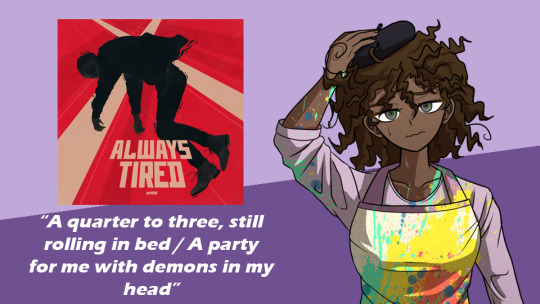
A: This song doesn’t have a ton of lyrics, but the ones it does have fit Rose pretty well. The most obvious connection is just due to the fact that Rose is, believe it or not, always tired.
I'm always tired, I just can't fight it
I'm always picking up my body, oh
Whether as a result of her hard work, an attempt to run away from her depressing day-to-day life, or straight up narcolepsy I don’t know, but the fact remains that one of Rose’s most apparent character traits is her tendency to fall asleep at a moment’s notice. And, despite the dangerous killing game situation, she doesn’t make any attempts to try to keep herself awake, like drinking a ton of coffee or whatever. She doesn’t really have the drive in her to try much of anything after being chained to the Spurling Foundation for life. Instead of making art based on her own creative drive, she has to execute whatever the Spurlings tell her to. She has to force herself to do things, mentally picking up her body instead of just letting it carry itself forward.
There’s also the matter of Rose’s nightmares, the combination of her photographic memory and the troubles she’s faced. The song is a lot about sleeping, but also a lot about seeing.
A quarter to three, still rolling in bed
A party for me with demons in my head
Do you ever know how eyes lie?
Do you ever see how I'm-
Even when Rose does try to sleep, she can’t avoid her photographic memory filling her mind with nightmares that feel incredibly real. Xander’s dead body, Min’s crying face, and Teruko’s haunting glare could all seem pretty demonic under the right circumstances.
The song’s continuous repetition of the chorus also speaks to how bland Rose finds her life now. It’s just a cycle of unfulfilling days doing the same thing with the same tired energy following her around. Unfortunately, that’s just her habit.
Evolutional by Big Data: J Rosales

V: This song largely centers around J’s relationship with her mother, Mariabella Rosales, and how J wants to make her own future rather than the one her mother wanted for her. In that lens, a lot of the lyrics to this song are honestly pretty self-explanatory.
It's my future, not a mystery
These games that you play, you're my history
Not your possession, you don't own me
Said it's all for the best, I disagree
J takes ownership of her own future, leaving her mother and the stardom she was born into in the past. She’s not just her mother’s child; she’s her own person, too.
Ooh, boy, what you gonna say when I walk away?
(Got a mind to eliminate)
Ooh, ooh, boy, what you gonna do when I'm not with you?
(I'ma show you another view)
J would much rather walk away from the whole situation. I have no idea what Mariabella’s reaction was when J walked away, but I have to imagine she wasn’t happy about it. J would probably enjoy that fact.
Gonna make a change, gonna rearrange
Improve myself, I don't want your help
Something I like about the lyrics to this song are that they focus on how J has taken ownership of her future rather than just rebelling against her past. Yeah, she changes from her past, but she does also “improve herself” in the sense that J has still found her way to an incredibly successful career, Ultimate-level worthy, through her own enjoyment of SFX. She doesn’t want her mother’s help to become famous, but she still thrives on her own terms.
Used to build me up, used to knock me down
Thought you were so clever, who's laughing now?
Are you listening? Do I have your attention?
I'm telling you now, I'm your final invention
J, as we know her, currently seems to have gotten the upper hand against her mother, given that she HAS become unrecognizable to most people and got to live out her life in relative privacy. I’m sure her mother is aware of this, though, meaning that J is the one “laughing now.” And, of course, if Mariabella is feeling like an Endeavor kinnie, she might see J as her “final invention.” Ryan is younger, but still, J is the evolution of the Rosales bloodline.
Remember the Empire by House of Heroes: Xander Matthews

A: Remember the Empire is a pretty general song about rebellion, which means that it definitely fits Xander, but not necessarily with the same specificity as some other songs. However, there are still some good lines to talk about, so let’s get into it.
Stand, stand up!
What choice have they given us?
Remember the empire,
Tear the king from the throne!
While possibly not as medieval as House of Heroes intended it, the rebellion that Xander asks people to stand against is definitely about taking down a king. Or, more specifically, a Duke. I doubt that Duke is actually a king by divine right or anything like that, but if you say that he was the old money ruler of the town in which Xander lived, there’s hardly a difference when it comes to modern day. “Remember the empire” is about Xander remembering both his family and hometown in the ways he wishes they would have stayed, and “tear[ing] the king from the throne” will at least restore that kind of peace to other families and homes.
Fight for the life that our children should have,
Fight for every freedom that we never had,
There's no turning back all the bridges are burned,
Our peace must be earned, so
Again, Xander is focusing on children because he was a child when the river in his town was poisoned. Speaking of rivers, sometimes they have bridges over them…? But also, “burning bridges” just means ruining your relationship with someone, which Duke Spurling definitely did.
While I would say that the majority of this song is more about Xander’s backstory than his (brief) time in the killing game, there are still a couple of lyrics that I think speak more to that time period than his past.
Here they threaten with murder and bribe us with peace.
Here they treat us like slaves and convince us we're free.
MonoTV sure did threaten them with murder! And bribe them with peace, too: given that Xander attempted to kill Teruko before the motive videos were actually given out, the main motive for the majority of the students was the temptation of going back to their peaceful, everyday lives.
“Treat[ing them] like slaves and convinc[ing them they’re] free” is a bit of a stretch, but who says I’m not flexible? MonoTV and the killing game establishment want the participants to believe that every decision they make is on their own terms– if a student chooses to become a killer, it’s about the despair secretly hidden inside of them, and not the external pressure of being put in a month-long life or death situation. But, the students are still “slaves” to both the headmaster, the structure of the killing game, and, in Despair Time’s case, the entertainment industry.
We wrote it down in blood, in blood.
We gave our lives for love, for love.
Also, while Xander didn’t actually write out an accusatory dying message in blood, the blood around his neck and on his fingers were relevant to the case. He is also (probably) related to the blood falling on the pieces of paper in DRDT’s opening scene, and certainly the recipient of the “kill Teruko Tawaki” note, which was written down to call for Teruko’s blood.
Similarly, while the direct reasoning behind why Xander decided to kill Teruko is yet unknown, it really feels to me like it would be “for love” of something. Love of the rest of his classmates? Love of Mai? Love of the world? Whatever the case is, he gave his life for it. Remember the Xander– tear the song from the list!
SAD (Clap Your Hands) by Young Rising Sons: Whit Young

A: There is precisely one section of the lyrics that made me believe that this song was for Whit.
I've still got memories to repress
But I still hear my mama saying
If you're sad and you know it
And you don't want to show it
Clap your hands
If you’re sad, that's okay
You can clap it all away
Just clap your hands
This part screams Whit so hard to me. Whit represses his emotions and memories about his home so that he can pretend that everything is fine. Whit’s mom is very important to him, and is more likely than not dead, such that anything she says would have to be in a memory. Much like how “bitter things should go down the drain,” Whit always chooses not to show his sadness, deciding instead to play things off as jokes.
Erase any unease you have with these two simple steps! Step 1: Clap! Step 2: Profit.
So, anyways, that’s clearly the best part of the song. What about the other parts? Well, they are probably making Whit into a bit angstier of a character than he actually is. Probably. (V: Yet. He will have angst. We can all feel it.) Compared to people like Xander or Min who have their own bonus episodes, or even people like Arei or Rose whose backstories have been explored a bit more in canon, we don’t actually know that much about Whit’s past. And, yes, I know that we literally got an entire scene almost entirely focused on Whit’s backstory. The problem is, given that he likely has a history of… omitting information, one could say, we don’t know how much of what he’s said about his past is true, and how much might be reframing things in a more positive light.
Still stuck in bed
Try to remember how
Unscrew my head
That's too left brain right now
[...T]hey say that if I try
That I could maybe be someone
But I'm scared because I know deep down
That day may never come
Shut up and be happy
It's all in your head
Grow up and be happy 'cause it ain't that bad
That's what my doctor said
Like, all of this could be true about Whit, I dunno. Or it could be false. To try to end this on a smart note, I’ll try to explain each of these sections as best I can.
Whit is probably a more right-brained person, to the extent that that model means anything, because of his strong intuition and innate understanding of how others are thinking and feeling. The left brain helps you with sequencing and facts, two things which Whit probably tends to ignore.
There’s definitely an argument to be made that Whit doesn’t see himself as a particularly talented matchmaker, despite being an Ultimate. When Charles asks him to break up the fights between J and Arturo, Nico and Ace, and Arei and MonoTV, Whit deflects, saying that he’s only a matchmaker, not a relationship counselor. (Charles points out that he didn’t bring up anything about matchmaking at all, which implies that Whit may frequently feel out of his depth when asked to do things as a matchmaker and is used to coming up with excuses.) Whit’s sales pitch for himself as a matchmaker in the prologue is basically a joke, too. And then, there are the details thus far only brought up in his character profile: he dislikes Valentine’s Day, and has never been able to succeed in finding a relationship for himself. That failure to matchmake the perfect partner for himself (assuming he’s interested in that kind of thing, but he does say he likes boys and girls and was confirmed as bisexual in a Q&A) may make him insecure in his skills, and thus in his future as an Ultimate.
Of course, his bio also says that “if you get the Ultimate Matchmaker to find you a romantic partner, you’re guaranteed to have a happy and stable relationship for life,” so do with that what you will.
And finally, Whit did ask other students about their prescriptions, and seems to have some familiarity with mental health issues, given how he was able to help Charles. I mean, any good doctor would not actually say “grow up and be happy ‘cause it ain’t that bad” to someone struggling with their mental health, but my point is that the lyrics could have some extra meaning for Whit if he did see a doctor for whatever in the past.
Look, like I said at the top, there is precisely one section of the lyrics of this song that made me think it worked for Whit. The rest of the song does not make as much sense, but the guy was hard to pin down. And, hey, it’s not our fault that Good Grief was already taken–
Killer in the Mirror by Set it Off: Teruko Tawaki
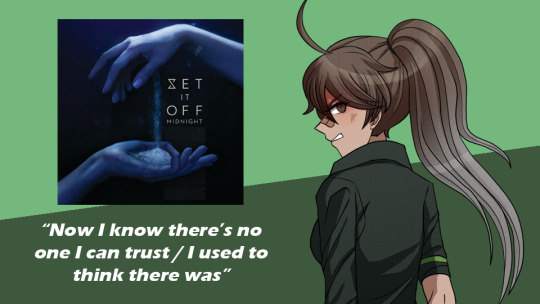
V: This song is such a #TerukoSweep. We were looking at songs and this was one of the first ones we locked in. It very clearly shows her shift after Chapter 1 to being more distrusting of everyone else, after both Xander and Min betray her.
Look out, they're closing in on you now
Wake up, or you'll wake up six feet down
Nobody's got your back in this town
Knock 'em in the teeth now
Teruko quite literally has to wake up or wake up six feet down after Xander stabs her, considering she’s unconscious for a long time. After that, she fully believes she can’t rely on anyone, so she becomes much more aggressive to the people around her, pushing them away.
Out here, there's no negotiation
No room to start a conversation
Before you get a taste, it's taken
Never let your guard down
This relates to how she doesn’t even want to talk to anyone after the Trial. She can’t ever let her guard down; that’s a large part of why she refuses Eden’s attention in particular. She can’t negotiate or start a conversation, because that, in itself, is letting her guard down– it’s opening herself up to friendship, which she no longer trusts.
Get back, put your hands up, kinda messed up, but it's tough luck
Tough luck you say? …Anyways.
And I'm sorry, but I don't feel bad for you
'Cause I know if you could switch this
You'd be dishing out the same shit
Saying sorry, but I don't feel bad
Teruko seems to hold the view that anyone could betray her at any time, and thus, they should all be considered enemies. She can’t feel bad for any of them, because they could all do the same to her.
Now I know there's no one I can trust
I used to think there was
Tell me that I'm cutthroat
I think you got your eyes closed
This is the same kind of thing. She can’t trust anyone, even when she used to think she could, because Xander and Min’s betrayals proved that not even those closest to her could be trusted. People say that Teruko is cutthroat for turning her back on everyone, but to Teruko, they don’t see the facts. She’s not being cutthroat, she’s being cautious.
Feel the fear and swallow back the tears
Let weakness disappear
This relates to Teruko cutting out her friends because they’re weaknesses, etc. etc.
There's nobody but me here
The killer in the mirror
This is actually one of the harder lines to justify in my opinion, because Teruko hasn’t actually killed anyone. …That we know of.
I’m kinda just banking on Teruko’s likely secret of “How could I even select what secret to be your motive? Just about everything you’ve done in your life is worth killing for. The killing game is all your fault” in addition to any inflicting-bad-luck-on-other-people-like-with-Min type situations being enough to justify calling Teruko a killer, at least in a hypothetical sense. If she really is responsible for the killing game (questionable) then she’d sort of have killed Xander, Min and Arei at this point.
The other verses’ lyrics definitely fit too, but it’s really just a lot of repeating Teruko’s philosophy. She doesn’t trust anyone for her own safety, she can’t have friends anymore, all that deal. Classic Teruko.
Conclusion
V: Thanks for getting all the way through this post! This thing ended up WAY longer than we meant it to. Still, I guess it makes sense, given that we tried to pick songs we thought had strong lyrical basis for the characters. Hopefully you enjoyed, coming from me and Accirax :)
A: Yippee, essays over! Thank you for reading. Now go listen to our immaculate taste in music some more (/lh /nf). And the original playlist, too! We could all use a little more DRDT brain rot in our lives.
#drdt#danganronpa despair time#drdt spoilers#fanganronpa#drdt theory#long post#accirax collab#tw suicide#tw self harm#crying i accidentally formatted everything on thinkin bout milgram before realizing i was on the wrong account#got to the tags and everything#anyways sorry this is like 10k words i don't really know what happened#gotta out-length our previous post ig#hopefully this is fun to read and not just... information overload#but yeah enjoy :D
18 notes
·
View notes
Text
The Tears of Time: A Look at the Gaza-C and Axis Zeon
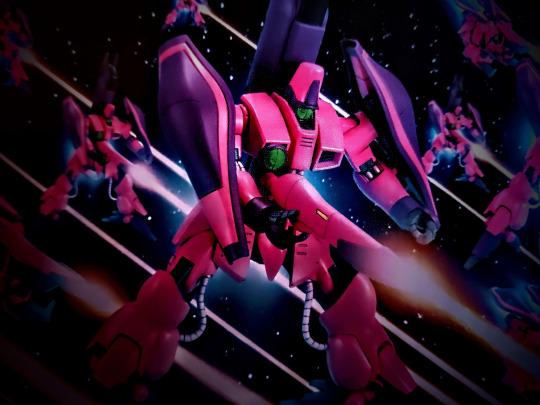
The smothering silence of space has been shattered for ages. In the Universal Century, the cacophony of war is a constant that ensures the vast emptiness surrounding Earth will never be calm.
In the Year 0087, yet another war is being waged. A lone assault carrier called the "Argama" drifts through the abyssal darkness of space toward an asteroid belt. After fighting battle after battle against the rival Titans, the crew of the Argama are hoping to make contact with the newly introduced Axis Zeon so they can form an alliance. Despite much dispute among the crewmates for aligning with a group that has a history of bloodshed and opposing ideology, those in command steer the vessel further in hopes of making contact.
Much like opening Pandora's Box, the crew is met with a swarm of emotions as they get closer; Only made worse by the swarm of pink mobile suits. Fitted with gleaming mono-eye cameras that fix their emerald optics toward the carrier, these suits called the "Gaza-C", are the first introduction to Axis Zeon. I believe they reveal a myriad of interesting things about the group based on their design and presence in the story that this post will try to explain.
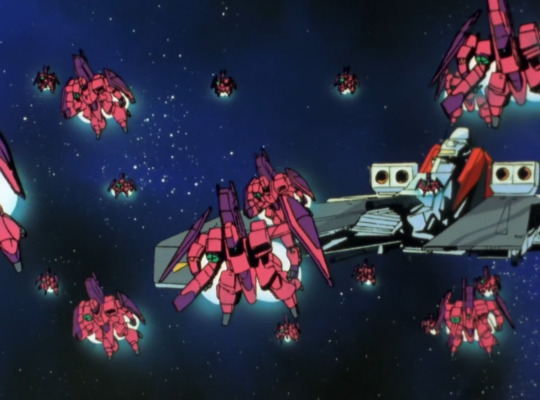
Hello there! ૮꒰ ˶• ༝ •˶꒱ა ♡
I haven't written anything in...an embarrassingly long time, but over the last few months I've been indulging myself in Mobile Suit Gundam. From the original '79 series through Gundam ZZ and Char's Counter Attack, I've been fully submerged in the space opera drama, politics, and cool robots. While the nearly 150 episodes of classic mecha anime have definitely given me a lot to think about, I haven't felt comfortable or well read enough to fully approach any of the topics the series deals with; At least until now. The Gaza-C is a mobile suit that I find extremely fascinating, so please bare with me for however long this text ends up being so I can explain my infatuation with this flamboyantly colored mech.
Firstly, a warning for the uninitiated.
I'll be discussing the Gaza-C, and by extension, Axis Zeon; Both of these are elements that appear in the later half of Mobile Suit Zeta Gundam and are prominently featured throughout the entirety of ZZ Gundam. Expect spoilers for both! ⸜(。˃ ᵕ ˂ )⸝
How Did We Get Here?
Before the Gaza-C can be properly savored, I believe a spoonful of context and a dash of history are needed to bring out the best qualities of this particular mobile suit.
After the One Year War depicted in the original Mobile Suit Gundam, The Principality of Zeon was completely and utterly broken. Those that remained came together on a small mining base called Axis and declared it their new home, but it was a mere shadow of what used to be. Axis Zeon would struggle to have resources and even survive properly, and those who lived there were in constant fear that the Earth Federation would one day wipe them off the map. While they were able to keep functioning and even replicate a life similar to the Earth Colonies, they would only have a fraction of the military power and technology that Zeon once did.
Haman Karn is a woman that would have grown up under this threat, and the struggle to survive mixed with paranoia and abandonment from characters like Char Aznable would lead her to becoming the radicalized tyrant set on wrenching every shred of power she can out of Axis in order to assert her Zeonic beliefs and prove her strength.
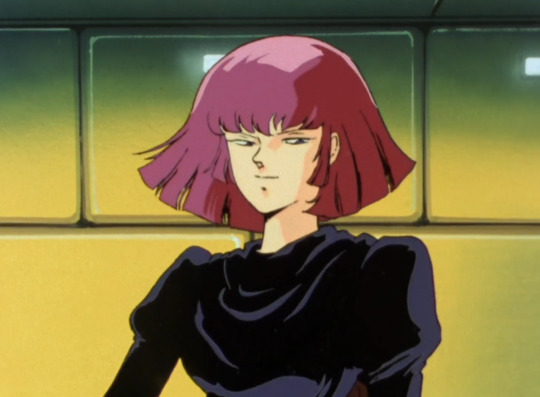
She's killed a lot of people, but she was slaying while she did it.
A Ghost of Zeon's Lingering Past
When Char departs from the Argama and meets her for the first time in years he refers to Haman as, "The Ghost of Zeon." Much to Char's horror, it's revealed that she's been protecting and raising Mineva Zabi; A young woman that is said to be the last carrier of Zeon's royal blood. Unfortunately this tutelage also meant she was taught much of the regal and selfish beliefs of the old Zabi family; The same people that were responsible for the corruption of Zeon.
I quite like the title of Ghost, because it implies this sort of belief of something that should be gone but still clings to the world. The terrible ideology of the Zabi family is something Haman clings to and wants to force on others, and this ideology encourages her to see people as nothing but tools and actors for her own personal goals. With Haman and the context of Axis Zeon in mind, we can finally get to the Gaza-C proper; A suit that manages to symbolically represent these different aspects of the faction.
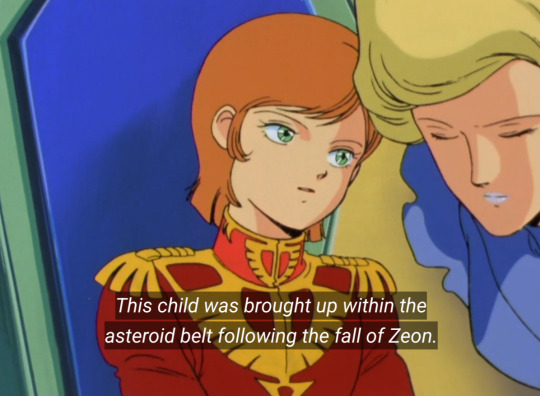
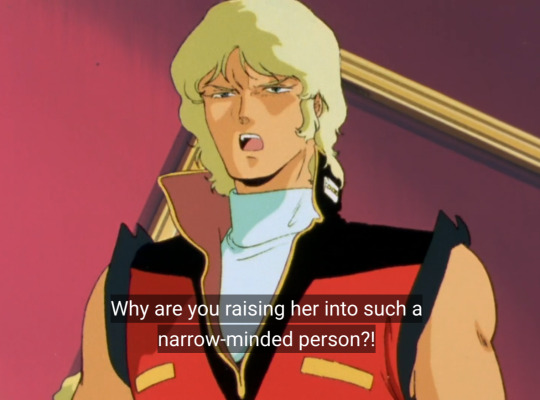
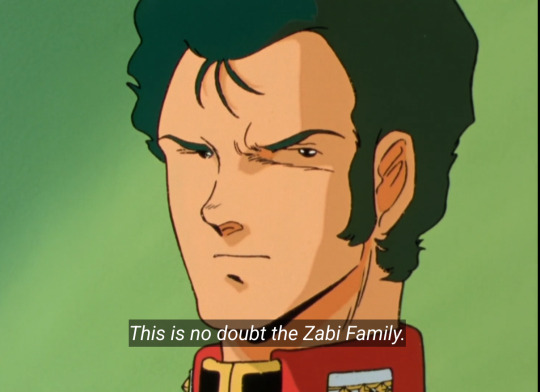
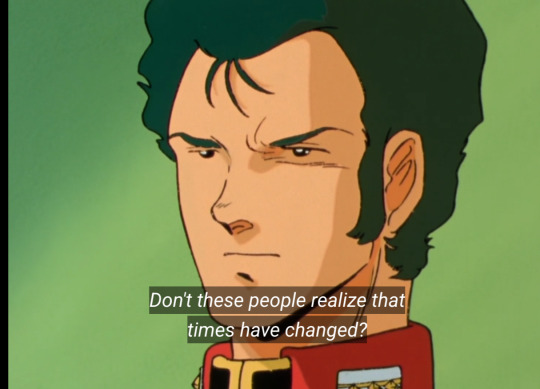
The Zabi family are low-key boomers, for real-for real.
It All Culminates In The Gaza-C
Many of the mobile suits used before this point typically have a humanoid design, especially the other mass produced suits like Zeon's Zaku and The Earth Federation's GM units from the original series. Those specific suits call back to soldiers from historic wars, and fit in perfectly as a depiction of this new type of warfare.
Axis Zeon's Gaza-C units don't share this trait despite having a similar purpose. A rifle juts out from the torso of the suit, with thick tubes connecting it to the main body. The "head" (if that's even a good word for it) is fitted with a singular eye that's reminiscent of a scope. The Gaza may have arms and legs like the other suits, but the structure of feet, head, chest, and the various exposed tubes seen throughout the suit give it a much more inhuman vibe than other suits seen up until this point. If anything, the Gaza-C feel like they're on life support. The mix of purples and pinks brings to mind organs and body parts, with the various tubes keeping the struggling things alive. Struggling would be a key word, as these suits are made from salvaged parts and quickly mass produced.
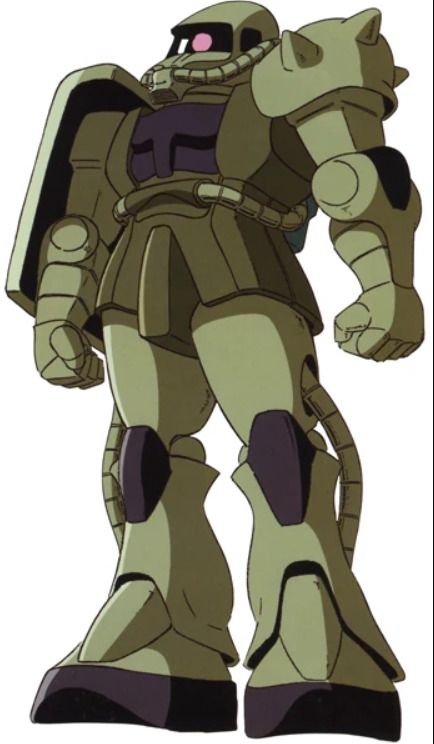
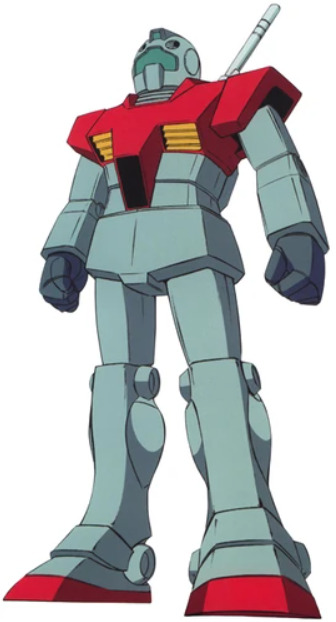
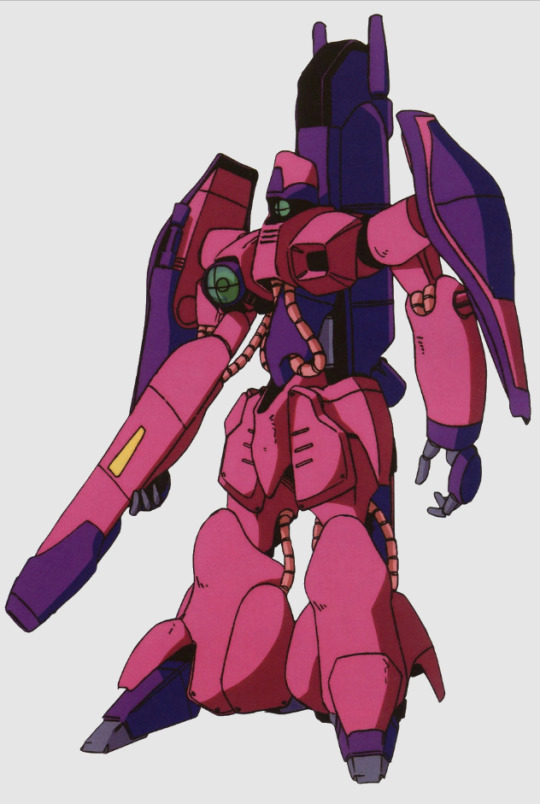
One of these things is not like the others...
Every mobile suit in the series is a weapon for war and destruction, but the inhuman Gaza units feel much more distinctly like weapons. The alt modes the units can change to support this further: A bipedal turret, and a more compact flight mode. Featured prominently in every mode is a very distinct rifle that is permanently attached to the suit. Taken together, it delivers a clear message; These suits exist exclusively to be used as a weapon without any form of humanity.
Our first encounter with these suits definitely displays this feature, where they're seen showering a Titan mobile suit with a rain of beam rifle shots. While the initial scene shows an impressive number of Gaza units to begin with, a quick pan out shows that the Argama is surrounded by them. Like flies, they jet around and peer into the glass of the vessel, making sure that the crew is fully aware of their presence.
The initial scene depicting them is off putting, and it definitely gives this feeling that Axis Zeon should be feared. But, I used the word flies for a reason. Much like those insects, the Gaza-C are rarely shown to be worth concern even in high numbers. Their introduction depicted a team of them taking shots at an enemy mobile suit, but the damage seemed negligible. While the suit did flee due to orders, it was less out of concern for their safety and more of a strategic decision.
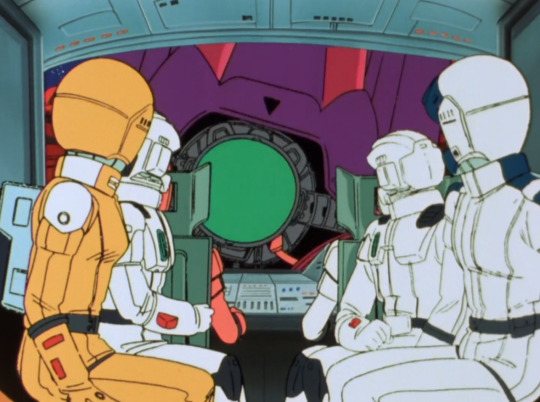
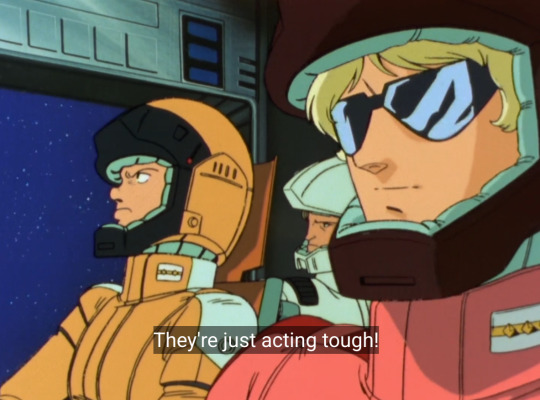
I, personally, would be a little more concerned if a large mech stared at my viewport.
Even with that kind of pathetic opening display aside, the suits are commonly shot down without much trouble as well. While there certainly are a large number of them, the actual threat they pose seems minimal...and it definitely seems like the Argama crew feel the same way. Comparing them to what the AEUG's Argama carrier or Titan vessels have at their disposal feels sadistic, since suits like the Zeta Gundam (and ZZ Gundam later on) or The O are practically walking fortresses that are more then capable of wiping out a Gaza fleet on their own.
Ultimately, I think the Gaza-C are mass produced, barely cobbled together units produced en masse purely to give the façade of power; Something that would make sense for Axis Zeon current situation. Haman Karn would want to be taken seriously as a threat, and meeting her competition with a full army of suits definitely leaves a strong impression.
Fragile Beliefs and Even Weaker Armor
Turning things into an army of emotionless, disposable, weapons wouldn't be something Haman is a stranger to either. During the events of ZZ Gundam, the Neo Zeon forces led by Haman are filled out with an assortment of lighthearted characters with quirks and personality. However, many of these characters end up being reprogrammed as Cyber New types and lose bits of themselves in the process; They become less human for the sake of acting like a better weapon for Haman's personal use.
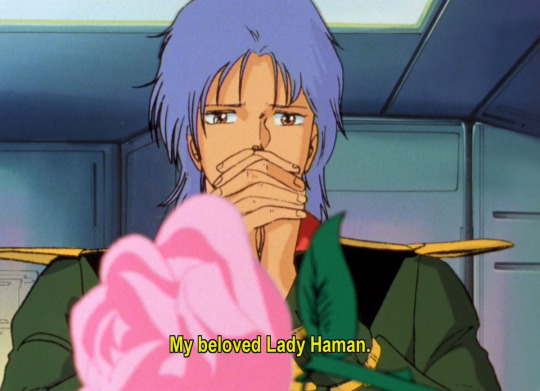
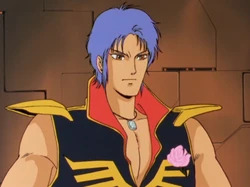
Not only did they rob his personality, but his drip too.
Despite how devoted to Zeonic ideals Haman and members of Axis and Neo Zeon might seem, I believe this devotion is extremely flimsy. Many high ranking members of Neo Zeon seem far more interested in appealing to Haman herself as opposed to any pride or devotion for their faction. The Princess that is meant to be the lynchpin of their whole faction is revealed to have disappeared before the events of ZZ Gundam, and...no one actually seems to mind this that much. Haman herself doesn't seem to want to restore the Zabi family to power either and even seems to be convinced that she was wrong for even trying; This leads to her taking her life during the finale of ZZ Gundam. These fragile beliefs seem to be perfectly represented by the fragile Gaza-C, which is completely eliminated by single blasts from the Zeta and ZZ Gundam suits.

Shockingly, this is one of the least gruesome Gaza trashings.
That's not to say there are no Zeon loyalists, as Glemy Toto was extremely devoted to the point of being sick of Haman Karn and staging a coup. However, most of Neo Zeon comes off as a group of quirky individuals simping for an unhinged woman with abandonment issues.
Justifying Atrocity
With all these things in mind, I feel like Haman Karn wanted to give off the illusion of strength so she could gain power for herself, and used Axis Zeon as a way to do it. The fleet of Gaza-C units and the Axis warship would definitely give an impression of strength, but the impression is all it is. Neither the AEUG or Titans seem to have any proper estimate of the groups military strength, with the Titans instead using the possible threat of a Zeon revolt as justification for their fascist policies. Besides Haman's own personal Quebley unit, the Gaza-C is all they have and it doesn't pose any major threat; Definitely not enough to justify the Titan's attempts to control Earth and Space.
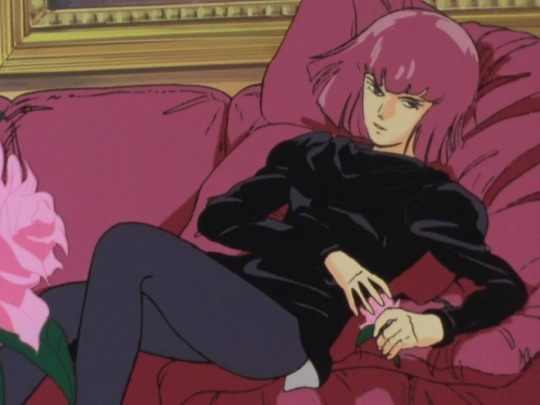
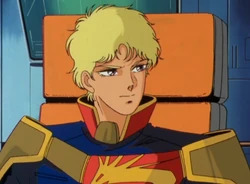
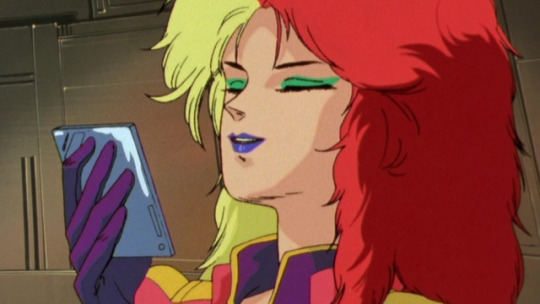
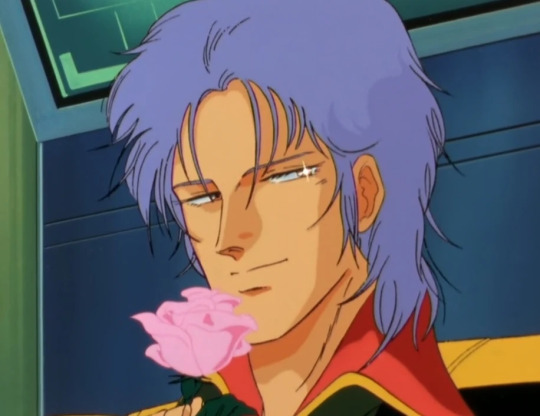
These dorks are what the average queer friend group looks like.
I think that's the perfect explanation of Axis Zeon as a whole, much like the Gaza-C they both look scary and can be used to strike fear, but both are fragile things that can be easily dismissed when the curtain is pulled back. The threat of an "Axis uprising" or "Zeon Revolution" was used primarily as an excuse for the Titans to force more control over colonies.
Even in the events of ZZ Gundam where a power vacuum allowed Axis Zeon to advance and gain more military strength, The newly renamed Neo Zeon was ultimately stopped by...children. They might have been extremely weird children, but the only real strength Neo Zeon had came from aligning themselves with other groups and taking advantage of the Earth Federation's negligence.
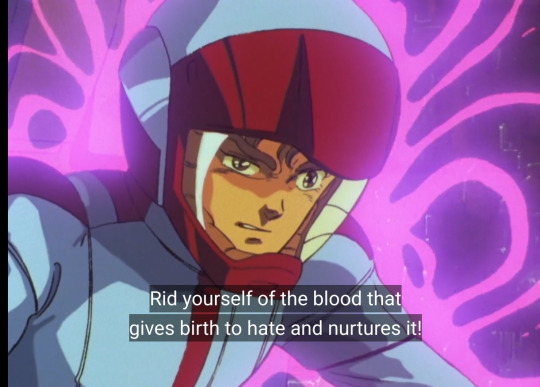
This small child fought the CEO of war crimes and WON.
To wrap everything together, I believe that Axis and Zeon is merely an illusory symbol of hate and regressive ideas that was used by the Titans and Haman to gain their own power. While Haman and Axis/Neo Zeon definitely existed, the actual threat they posed both ideologically and through sheer military strength was horribly diminished and downright miniscule compared to the might of the Titans or even the AEUG. The Gaza-C units are a perfect example of this; though their sheer numbers and design can appear threatening, in reality they're all barely finished suits crafted from salvaged parts that can't withstand any sort of real fight. If Haman Karn is the Ghost of Zeon, the Gaza-C are the corpse, dragged out as a display of power in hopes to hide the decaying state of the faction they represent.
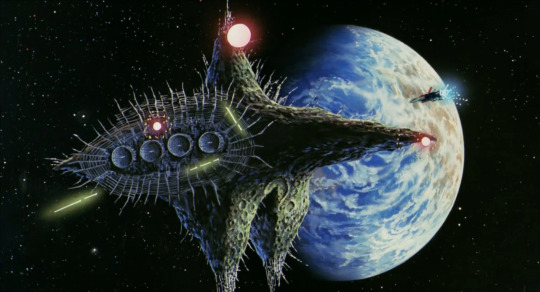
The little asteroid Axis that could...(it actually failed.)
Bonus Section: Woah! Cool Robot!
Story relevance aside, I do genuinely adore the sheer aesthetic and want to rave about the Gaza-C model kit. The starkly distinct pink and deep purples mixed with the emerald eyes and windows give it a very unique look compared to other kits, and the asymmetry present in the design not only gives the kit a unique look, but keeps the actual building process interesting throughout.
My first foray into mech enjoyment came with transformers, so having a kit that transforms into several modes brought me a large dose of euphoria. The kit even came with a flight stand so the other modes could properly posed and displayed.
Taken together, it's a very unique kit with a lot of really cool features and I've absolutely adored my time with it. Although the actual build and lining process was a lot more involved then I would have expected, it does make the thought of making a small army of them feel less enjoyable tenable.
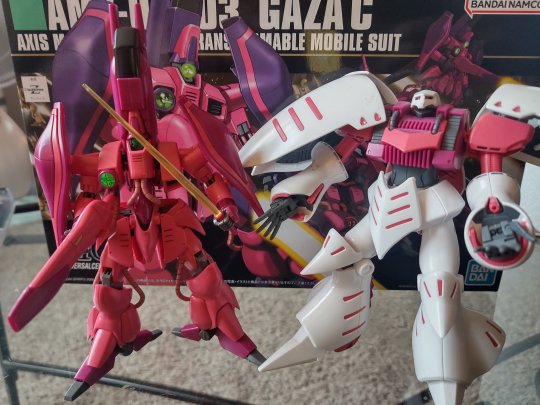
The Gaza-C and Quebley are besties ^.^
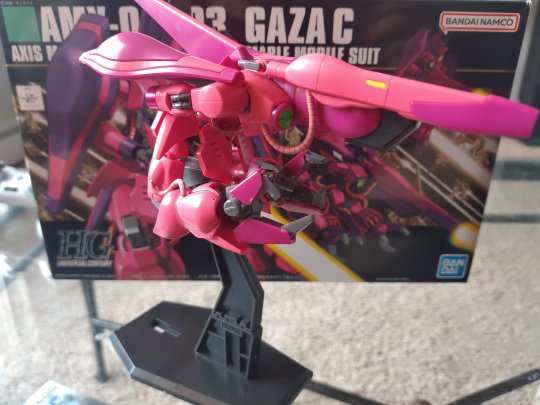
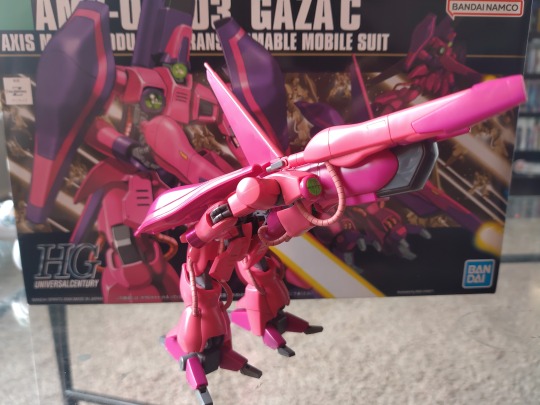
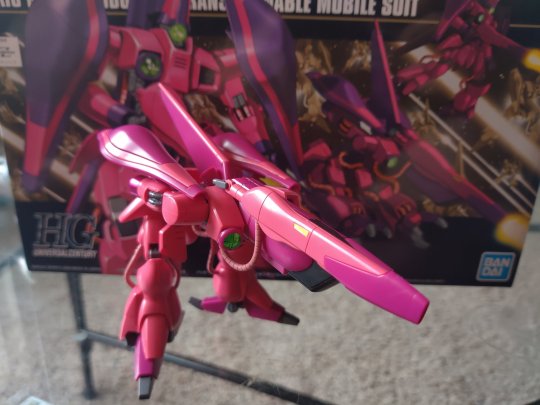
I'm a little quirky so transforming suits like these make me happy. (;^ω^)
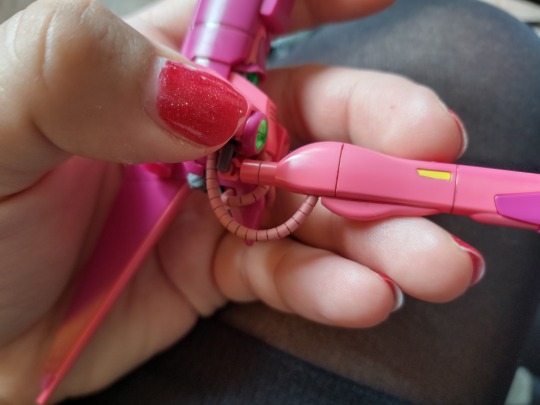
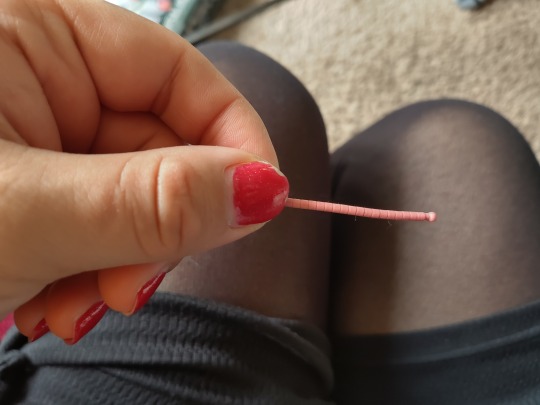
Panel lining these tubes was a nightmare and one of the reasons I'm discouraged from building a whole army (´-﹏-`;)
Conclusion
The Gundam franchise as a whole sports a bevy of interesting mech designs, but the Gaza-C really stuck out to me as a very minor detail that ended up giving a lot of insight into the story and characters. This was definitely a lot to go over so I hope anyone that read this far enjoyed and can possibly also share my appreciation for this suit! This was my first time writing anything of this nature (and first time writing at all in years) so if there's any feedback please let me know!
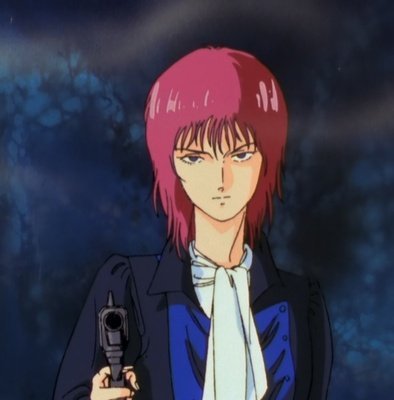
Unlike Haman, I won't react badly to criticism (Probably)
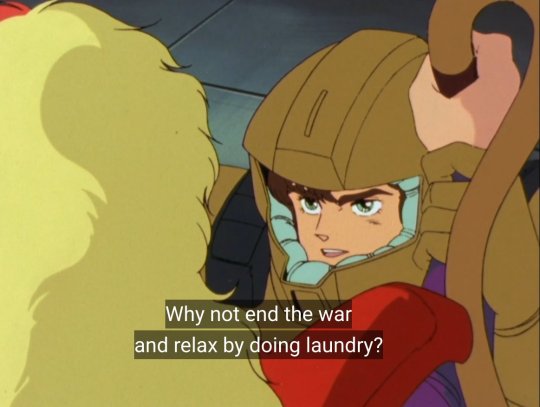
I don't actually have a caption for this, I just wanted to share more ZZ please watch it. I promise it gets better, the early episodes have some whiplash coming off of Zeta but I think the series actually works really well as a more light hearted Gundam experience with a cast of loveable charac-
#gundam#zeta gundam#zz gundam#haman karn#principality of zeon#neo zeon#mobile suit gundam#gunpla#gundam 0079#zaku ii#char azn#mecha anime#model kit
39 notes
·
View notes
Text
who is duke of york?
(fair warning - this is a look at how i characterise duke of york, and the character arc that i envision when writing her. also, thank you to @cursedalthoughts for starting the shipgirl appreciation trend and encouraging me to write this! )
that's a question with many answers, because doy is fundamentally an actor. to understand where this comes from, we have to understand what her environment is.
the royal navy is obsessed with appearances. not (always) in terms of vanity, but the combination of strict hierarchy and the rife repression issues causes an environment where disputes are waged behind backs (the perfect place for both talking and stabbing, after all.) and the air is thick with tension and secrets. doy is the third ship of the king george v class, a battleship line that has manifested only second in importance to queen elizabeth herself. this position means that in such a class-based hierarchy, people look to them for how to act, and look at them to scrutinise their moves. this has impacted how the kgv class goes about their lives: george throws herself into being the perfect leader (without overshadowing the qe class of course, because that's not proper), wales lives up to being a lady in polite company but the rumours that abound about her being lecherous show that her time in the us was likely a way to escape the public eye and live her life, and howe plays into the sweet girl next trope. doy?
doy plays herself.
doy is a vampire - the sole one of her family to be (so far, pls prove me wrong anson) and the friction this creates... doy's nature instantly sets her apart from her family. combined with the physical differences (being the only kgv without red eyes or blonde hair is distinctive enough) she is also the only kgv class with a dietary preference that isn't accommodated in waitrose, which means she is already excluded from enjoying what her oldest and youngest sisters create, which is an expression of love for them - a love she cannot eat, or else she'll be sick. and on top of that, george is a doting sister when not on duty, and george also has a sun motif. her skill activation calls upon the empire and the sun which never sets, wales refers to her presence as like a sun in her memory, 'bright and indiscriminate'. which is a bit of an issue when doy takes after something to which the sun's touch is lethal. every time george reaches out to doy it'll only hurt her more, and the only thing that hurts george more than seeing her sisters in pain is not being able to be there for them, which happens as doy pushes her away thinking that george does not care for her (because she stopped trying to reach out, and because when she does it only causes hurt due to their incompatible goals - george wants her family to be seen as the pinnacle of royals even if it means that george has to sacrifice her time, doy wants to be able to live true to herself even if it means pushing away her family)
doy cannot be true to her nature in the royal navy, where she is in the public eye so often - it opens up her, her family, and her nation to criticism by having a monster among them. she cannot be like wales and be sent to another country to mitigate scandal - that would be seen by some as an act of war. at the same time, many think keeping her among the royal navy is like letting a fox into the chicken coop. yet doy cannot deny herself, either of blood or of her sense of self - she suffers death either way, be it the death of her body or the death of her mind.
her 'solution' is, in the words of shakespeare (and in a play about her namesake no less), she shall play the villain. doy shall be the moon to george's sun, and make the royal navy unite under george for fear of her. she puts herself at odds with the royal navy, but only in a way that the royal navy can see. the cut of her jacket may be daring to an outsider, but it's thoroughly improper for a knight-lady of her status - which one would only know from inside the royal navy. as such, she straddles the line between ship and human and monster in a way few others must. doy paints herself as a monster, a predator, and uses that bloodlust to defend the royal navy, because she is an incredably powerful combatant, and leverages this - the royal navy cannot let her go because else they lose one of their most valuable ships, capable of defeating sirens with both gun and blade. so in return, the royal navy gives her a ration of blood bags and pretends not to see what she gets up to. (officially. maids talk, after all, and ladies are horrible gossips.) so now when doy stalks the halls of the base, it is with a cape and whispers behind her. she can play at being a lady and take tea in the garden gazebos, she can stir up rumour by seducing a maid. she doesn't have to worry about what is proper for one of her station, because anything she does will be commented on but none of them can do anything about it. no one knows what is proper for her station, because no one knows what her station is. she is free of the shackles of royal society, and bound in the ones she cast herself - by casting herself in this role.
she now draws the ire of detractors in the royal navy - wales got handsy with a eagle carrier? doy seduced, fucked, and drank the blood of a past defeat from the ironblood, so people forget about wales' deeds. doy is a protector in the same way a dagger is - subtle, deadly, and prone to driving people to madness. doy throws herself into tragedies because they are villains of circumstance and choice, like her, because each new play gives her her lines and stage directions because the moment she leaves her room each day she is on stage and even in the wings she must rehearse. even her room is set with props to further sell her character, as if each day that she wakes up onstage she'll believe her persona her true self. she sees herself in those pages because she cannot allow herself the hope of a comedy, not when her smile displays fangs. it is better, in doy's mind, to choose to lock yourself away than risk rejection.
and these are all things she unambiguously likes! doy is a creative person, and she loves the macabre too - but she cannot let such a weakness be exploited, and so when she must talk about it to others she introduces it with an air of cynicism, because she cannot be true to herself, not when she has spent so long cultivating an image under those harsh spotlights of the public gaze. doy is hesitant to step off the stage, and thus outside of the rules she's made for herself and caged herself in. even when she lets someone inside it still takes time for her to unmask, and even then it seeps through. even once she is comfortable to, she jests about her nature in a self-deprecating way.
and so, doy has locked herself in to a state of existing between scylla and charbydis - the greek monsters, not the maids (she'd likely not mind that) - where she cannot be herself, or risk being outcast by her reason for existing, nor can she be someone she is not, due to her nature.
doy played herself.
there's friction between her other sisters too - wales' career is... less glorious than doy, and it leads to wales' inferiority complex towards her sisters, which when doy plays the villain makes it easy for her to step in and show off her skills. the issue arises when doy gets as much attention as she does - after all, there's no better excitement for an audience than a villain they love to hate
and howe... howe, who is near universally loved, who has social calls and pleasant words aplenty is a cruel inversion of doy, who is regarded with fear on land but whose capabilities in war are never once brought into question, unlike howe, who wishes people would see that she's just as capable as her older sisters.
and doy envies her sisters for all that they can do - what is a duke, when compared to a king, a prince, or an admiral?
second-rate.
but doy is not the only vampire within the royal navy. surely a precedent must be set with vampire too? alas, not in a way that impacts doy. vampire's manifestation prepared the royal navy for the concept of a vampiric shipgirl, but vampire is a destroyer, not a royal knight. people do not look to vampire to lead, to sign policies, to deal the killing blow. this is something which creates a rift between the two - vampire can be herself and have a relationship with others in the royal navy, even if it is shadowed by her nature. vampire is perhaps the one person in the royal navy who would understand doy, but doy has convinced herself that she doesn't want to be understood - and in truth, is terrified of understanding herself, because it calls into question all the decisions she's made.
she plays her role with all the grandeur an actress could dream of, and those she shares the stage with, even for one night, are lavished with gifts - the only price is being tainted by the vampire. her estate is remote, unlike her sisters that reside at least somewhat close to civilisation, doy lives in the yorkshire pennines, in the dark peak, an area of the peak district known for its brooding moorland and bleakness - a place no one would come to unless in distress or invited there by doy. it is in her own home where doy is her most herself - as seen by dropping the iambic pentameter, which she adopted as a false heartbeat to replace the stillness of her own.
doy's desire for blood and the carnality that accompanies it is treated with distance, and so doy distances herself in order to spare herself the heartache, never addressing the core misconception, thus the cycle continues
and so, doy is an actor with many masks. the monster, the sister, the fiend, the lady. perhaps one day she'll figure out who she is behind it.
#haha get it bc second-rate is a way to refer to ships?#hms duke of york#azur lane#azurlane#azln#anyway pls ask me abt the queer parallels
26 notes
·
View notes
Text
|| HC- Freminet ||

Unlike Lyney and Lynette who relied on each other in the streets as children, Freminet was surrendered to the Hearth by his mother when he was a young boy. With that in mind, it can be inferred that he has spent a longer time living under the previous director’s philosophy before Arlecchino’s subsequent takeover.
Isolation:
Statistics have shown that those living in poverty are among some of the most vulnerable groups of people that are susceptible to exploitation. And Freminet is no exception to that.
Since Freminet is a naturally shy and introverted child, he only had his mother as a source of emotional comfort and stability from the start, which makes isolating him from all others is easily done. No one, apart from his mother, would miss him when he’s gone or even notice his disappearance.
Given the fact that she willingly gave him over to the orphanage to prevent the moneylenders from harming him when she was no longer able to pay debts incurred by his absent father, it is unlikely for her to be able to spoil the narrative fed to her son, who was told by the previous director that she sold him to settle a debt.
To further drill a sense of fear and thus obedience into the boy, he was told that the Hearth is his only home left, the children within are his only family left, and that if he cannot comply with orders, they cannot guarantee his mother’s safety.
Indoctrination:
Under the previous director’s guidance, all of the children are raised in a culture of fear: Those who fail to meet their expectations, regardless of what reasons or difficulties they face, are often painfully and harshly punished. They are taught to be ready to give up their lives for their ‘family’ and to do whatever it takes to extinguish/expunge all that threatens the House of the Hearth. No matter what, there is no excuse.
And though he tells himself to face reality, a tiny part of him still held on to hope. What if his mother comes back? He needs to be around lest she can’t find him. He needs to survive.
Even if that meant dirtying his hands. Even if that meant someone had to die in order for Freminet to get through another day. He can live with that guilt. Freminet is used to working solo: being dispatched often to swiftly, mercilessly, get rid of the Hearth’s enemies.
Although he is often referred to as “naive (possessing a childhood innocence worth protecting)” by Lyney, the sad truth is that Freminet is not as innocent/naive as he appears to be. It is this quality in him that he weaponises when committing atrocities in the name of the Hearth and when getting close to others.
Much akin to the fairy tales he reads, the children in the House of the Hearth have a habit of ‘keeping the magic alive’ by downplaying the actual happenings of things despite their inner acknowledgement of the ugly truth that lies beneath it all.
Coping Mechanism:
To survive in such an oppressive environment and continue existing without the toll of the heinous acts weighing on him, Freminet minimised his own presence in the orphanage, willingly complying with every order in silence to stay out of the director’s wrath/line of sight. He began seeking for an escape, a temporary reprieve in it all, by retreating into the sea that has always been a source of comfort for him (apart from his mother).
There, he finds he could be himself. There, he is free to cry if he needs to, without running the risk of punishment or being scolded. He continues to seek out his underwater paradise even after “Father” took over, as “Father” themselves disliked when children cry, believing it to be a product of weakness.
Freminet first learned to cope with his missions, and everything by extension, by repressing all of his own feelings. Through becoming as unfeeling as a clockwork toy, he places on his helmet to shut out the background noise, and carries out orders mechanically.
Despite things changing after “Father” took control, this coping mechanism is what he defaults to when out on the field or particularly distressed.
Opinion of “Father”:
Unlike the previous director who treated the children as dispensable soldiers, “Father” took to leading them in a different direction. Arlecchino sought to drill into them that every one of them is important, and they have to value their own lives, be their strongest selves, and stand on their own two feet.
“You have two choices before you. You can either wallow in the past until you drown in its miseries… Or you can join hands with your 'family' and open your eyes again.”
That was what Arlecchino imparted on them: this home is a place of refuge for all the family’s children. It requires a collective effort to maintain but they can complete their tasks in the way that best suited them.
Though Freminet was as reclusive and inwardly distrustful as ever in his uncertainty, even he could not help but form a level of respect and attachment towards the Knave. That is because “Father” was the one who cared enough to retrieve his mother’s pendant and tell him the truth of what happened to her: That he wasn’t abandoned. She perished holding it at the very end, having chosen to face the moneylenders alone in order to protect him.
It was “Father” who changed him and his view on ‘family’, and it was “Father” who paired him up with Lyney and Lynette, giving him genuine companions for the first time ever. That is something he can be grateful for. As such, he is likely to defend Father if needed and does not wish to disappoint their expectations, despite it all. While he believes it's his own desire to protect his family and prevent misfortune from falling upon them, there is no doubt that there are traces of Father's influence there.
****(It does not, however, erase the fact that the House of the Hearth is STILL being used to indoctrinate child soldiers for the Fatui.
It does not erase the fact that the children are STILL being used, willingly or not, and weaponised. And if you are beginning to feel like Arlecchino is a good person AT ALL, then her influence is WORKING. That's what makes her a well written villain. She is able to compartmentalise well: treating the kids genuinely in a caring manner whilst still using them)
#charac: freminet#child exploitation tw#indoctrination tw#grooming tw#[this is important in my interpretation of him]
9 notes
·
View notes
Note
Hi i've been insomnia scrolling thru étoile's tag reading as much as i can about them & i LOVE paladin characters, and the devotion => oathbreaker pipeline in particular is sooooo tasty (my first tav had that trajectory), so i was wondering if you could share more about that aspect of their character (sorry if you have somewhere else and i just haven't found it yet)
You're so very kind, thank you! (:
I have a post about what I allowed to cause their Oathbreaking in-game.
But I'm happy to elaborate! (Me @ me: That's not necessary—)
I also have a few scattered posts about the following details that I'm happy to compile in one place.
.
The [temporary camp character] I'm referring to in that linked Oathbreaking post is Arabella, and she asked if we'd found her parents. And I was like, okay let me not have this conversation covered in blood— But there was no way to back out of that conversation "neutrally," I guess, the best option being "I haven't found them yet. (lie)" And the Oathbreaker Spirit saying "Something in you has broken" for that was so annoying, but someone told me that it completely explained why the stereotype of classic d&d Paladins was Like That and why Xenk's characterization in D&D Honor Among Thieves was the way that it was.
For Xenk specifically, his inability to make exceptions to upholding goodness paired with his way of speaking ("Just because that sentence is symmetrical doesn't make it not nonsense.") is entirely constructed to avoid Oathbreaking = losing his god's favour, losing his abilities, and breaking his code of honour. Perhaps if Étoile had been able to tell Arabella, "That which can be found must first be lost." Then they would have avoided lying / Oathbreaking; or maybe they should have just been honest and ignored the blood.
.
Their mother, Wylla, being a Paladin in Tamriel (Skyrim, ESO) meant she had entirely different constraints on her morality (none). I think this means that her Oath in the Forgotten Realms was almost so vague as to be meaningless. Let me come up with an Oath to satisfy myself and move on from this point:
Oath of Kinship
Allegiance Above All. Defend those who would call you ally. Never turn against your kin.
Mercy. Offer patience and forgiveness to enemies that change their hearts.
Rivalry. Challenge peers and adversaries with pride and prowess. Flaunt wisdom and ability.
Honor Your Community. Strive to support your friends and respect the boundaries of your neighbours.
Easy enough for Wylla to reason out that anyone who looks on her with fear as they die hasn't truly changed their heart, and all who seek to injure her family isn't kin.
.
But her Oath is important because it would have been her achievements that initially inspired and motivated Étoile to continue down this path. Her training could have changed to just protecting their home if Étoile had instead pursued something more like being a priest of Auril, or to just protecting themself if Étoile had wanted to leave the mountain for any other life. It was an Oath she kept from her outset as a Paladin, which would have been around 27 years of age, until her death at 66. 39 years.
I think of Zevlor too, and how he might've been a Paladin from a young man. I'll say 23, to his Oathbreaking (whether after leaving his order when Elturel returned from Avernus or after Act 2, depending on your perspective) — I held a poll and found most people think he's 45 years old, I like 64 for Zevlor; that's either 22 years or 41 years in his Oath.
Étoile expected to live in their Oath for centuries. They were setting up a way of life for themself. They only managed from the ages of 100 to 166, but that's 66 years, and longer than either of these other two Paladins, and probably many more besides.
.
Auril, Étoile's forgotten realms deity, has had a surprising number of Chosen in my opinion, and at least two, possibly three, that seem to be concurrent. I would have assumed a god could only have one Chosen at a time!
One of her Chosen was the Neutral Good Bard Artus Cimber, a famous adventurer who held titles such as, Master Historian, Grumog's Bane, and God Slayer.
I think that such a devout and revered member of Auril's faithful was able to maintain both her favour and their alignment had also instilled a hope (or even an expectation) that Étoile would be able to get through their own trials without Oathbreaking / changing too much.
They do love people and strive to protect them, though for others that has meant death. They wouldn't have thought siding with the living of two choices (He Who Was vs Madeline) would have been perceived as the evil action, especially with how they personally felt about Madeline's actions.
They had already been allied with beings that most Paladins would have not tolerated due to stricter definitions of evil, and somehow these actions had been forgivable, but not this.
It made them a little crueller, more willing to express hatred and impatience, to side with evil beings and choices, no longer required to uphold their Oath, only their dignity.
With this in mind:
They were able to support Shadowheart through the loss of her faith and way of life, and eventually to support her in spitting in Shar's eye for the sake of reuniting her with family.
They signed Raphael's pact instantly.
Their greatest fear has always been a loss of autonomy and the Emperor's actions and presence was a direct risk to that, if not an outright flaunting of that power: Étoile remembers their body twisting on its own to find that first illithid parasite. They never used their ~Abilities~, though it can be noted that they did debate the temptations a lot in Act 2, never deciding it was worth the risk. And then knowing the Emperor had witnessed their every intimate moment, and possibly their every private thought, for the past few tendays, was unforgivable.
They liked Lae'zel more than the Emperor. Raphael had been the first entity to uphold part of a promise by giving them the privacy of their own mind for five minutes, and what did Étoile care if the war in the hells shifted in his favour. Getting the Crown of Karsus off the Material Plane sounded like a wonderful fucking idea. Mystra had made no promises to Gale about removing his or the others' illithid parasites and based on Gale's experience with her, Étoile didn't think she would! Karlach wanted to steal the contract, but Étoile thought Raphael would make a better ally than Mystra than he would make an enemy.
Étoile was like half-way through their signature when Raphael added that he wouldn't even use the Crown to dominate people on the Material Plane or whatever the fuck and like ? oh, that's nice.
They would have allowed Astarion to kill his siblings if he'd thought that was best, but they couldn't let him kill the spawn, that was too many. People he didn't know, with just as much capacity for growth as he'd had. Étoile had lived on the outskirts of a village of 400 — not even in the village! — the scope of 7000 was just so many.
While Étoile would never, under any circumstances, risk their mother's life, their relationship to her was far different than Wyll's relationship to his father. They convinced him to get out of his pact; in Étoile's opinion if Ulder truly cared for Wyll then he wouldn't want him to stay indebted to Mizora, and if he didn't then fuck him Wyll deserved better.
Their only real regret that was part of their "base canon" was not offering to go with Karlach to Avernus. I kept hoping Wyll would offer after they added that possibility, but it never happened in Étoile's primary save file. I'd like to play them again sometime, and hopefully then the end of Wyll's quest won't be bugged for them and we can finish the stuff with Ansur. Étoile was afraid, and selfish, and had things they wanted to do / people and causes they were devoted to on the Material Plane, so they didn't offer.
And I say "base canon" because keep the headcanon that a piece of the Mourning Frost / the upgraded Dead of Winter in their personal quest, is able to magically cool Karlach's raging heart and allow her to remain on the Material Plane.
.
Also sharing this post about post-canon Étoile written before the epilogue came out.
.
I think their Devotion never truly leaves them, but they can never return to their Order (which is part of why I never bothered naming it) and can never rise in the ranks. They would also feel they don't deserve the respect of a Paladin, especially ones living in their Oaths, and I feel many others would also feel this way about them. But they killed people before their Oath, during, and after. It's only their conduct that's changed, and not so much that they're unrecognizable from Neutral Good to Neutral Evil, but enough that they feel it, and enough that it terrifies those who relied on their goodness — even Astarion balks at the idea of the pact with Raphael.
.
From my Bad At Biting fic; Étoile x Astarion:
“A single night would suffice [for a vampire to turn someone into a vampire spawn],” Astarion confirmed, whilst Étoile took a deep breath between their teeth. “Death is the requirement.” He winced through his smile, waiting a moment while his gaze danced between their person and their visage. “You let me lead you very close last night.”
Despite their recent understanding of their circumstances, Étoile still managed to smile in response. The answer was easy. There was a fellowship in surviving starvation in the north, and a camaraderie in those who ran from the same enemies, who sought comparable freedoms. Étoile’s mother had eaten people, and their own hands were hardly clean — not like their conscience. Denying a vampire a mouthful of blood hardly felt in-line with their upbringing. They knew their Oath, and they knew their code, the path where they met was always going to be difficult, and hard for others to understand. Even vampires, it seemed.
“I trusted you would stop,” Étoile said generously, more believable in past-tense than it might have been in the moment.
From my Magic In The Air fic; Étoile x Gan (evil path) (headcanons about the limits of Auril's magic):
“Three years ago,” Étoile explained, “Auril was defeated by a group of adventurers. It’s what put a stop to her Everlasting Rime. When she died, I lost use of Ray of Frost until she was reborn on the following winter solstice.”
They closed their hand, tighter than they needed to to dispel the magic.
“So there are limits to the distribution of magic,” Étoile concluded. “Even innate.”
Gan’s poise and patience should have felt distancing, they were ever sharp and unabashed in their valuations of their enemies and allies both, but Étoile couldn’t help feeling mollified by her attention. Étoile hoped that Gan would recognize this extension of their trust in baring this vulnerability.
“Between our … victory over the grove,” Étoile said, dropping their hand to their side, squaring their posture, “and the following night, I could not use magic that was powered by my oath as a Paladin, not until that was restored by the Oathbreaker Knight, but even then, despite losing my capacity to be her Paladin, I was still Auril’s faithful, and … this spell wasn’t lost to me, as maybe I felt it should have been.”
“You’re stricter with yourself than your goddess?” Gan asked, amusement in their tone and an sympathetic tilt in their brow.
Étoile scoffed through a smile. “It had just been some time since— Well. I’d been living in Baldur’s Gate and among … people. If I had only been trying to live and learn, maybe I would’ve been different, but with those I grew close to, I was trying to advocate for my own manner of people — and to do that, included bending to laws and morality that are not the providence of my god. It is a relief to know that she would still have me, regardless.”
3 notes
·
View notes
Text
I posted an insanely bullshit theory when I got lost in the Wikipedia labyrinth that I soon deleted after coming out, regaining my sanity, realising it was far more bullshit than bullshit.
Here's some stuff I salvaged from the shit because it's interesting:
Marina is a western name. Marina holds the Changeling soul. Changeling is a being that replaces someone's identity. Primarily they steal bodies of children, making the myth of the stolen child. The difference between a doppelganger and a changeling, is that a doppelganger completely replaces the person, but exists as a separate double, meanwhile a changeling imperfectly replaces a person, resulting in deformities, and desires to steal the identity of the chosen human completely. That may be the reason why she's born with a male body instead of the correct body, the female body.
Changeling takes identities like skin-wearing:
"Interesting note on Gro-Goroth - he is curious kind. More so than many of the other older gods. To relieve the feeling of fear, Gro-Goroth wears bodies and skin of men and women alike. He might still be walking among us, masked under the skin of people and hanging bodies, blessing us with his blood magic."
Is Marina Grogoroth? Honestly it's fucking funny if it is.
"Some stories tell of changelings who forget they are not human and proceed to live a human life. However, in some stories, changelings who do not forget return to their fairy family, possibly leaving the human family without warning. The human child that was taken may often stay with the fairy family forever. Feeling connected to a changeling's fate, some families merely turn their changeling loose to the wilderness."
"Pericles and his crew arrive in Myteline, and Lysimachus goes out to meet the ships. Helicanus explains that Pericles has not spoken in three months, and Lysimachus says he knows someone in his city who may be able to make him talk. Marina is brought to the ship, and she tells Pericles that her own sufferings must match his. He asks her about her birth, and she says her name is Marina. Startled, Pericles asks her to continue, and to his surprise finds that everything Marina says matches the story of his own lost Marina. They are reunited, but Pericles is exhausted, and in his sleep the goddess Diana tells him to go to her temple in Ephesus and tell of his experiences. When he wakes, he promises Marina to Lysimachus, and they set off for Ephesus."
Marina's moonscorched is a cocoon, a desire to shed her skin to wear a fitting one.
Marina's appearance is in opposite of Samarie. Note about changelings: "Beauty in human children and young women, particularly traits that evoke brightness or reflectivity, such as blonde hair and blue or silver eyes, are said to attract fairies, as they perhaps find preciousness in these traits.[8]"
Samarie's appearance is the opposite of Marina, monotone and sharp.
Samarie is an eastern name. "Samaria's biblical name, Šōmrōn (שֹׁמְרוֹן), means "watch" or "watchman" in Hebrew.[7] The Bible derives the name from the individual (or clan) Shemer (Hebrew: שמר), from whom King Omri (ruled 880s–870s BCE) purchased the hill in order to build his new capital city (1 Kings 16:24).[8]In earlier cuneiform inscriptions, Samaria is referred to as "Bet Ḥumri" ("the house of Omri"); but in those of Tiglath-Pileser III (ruled 745–727 BCE) and later it is called Samirin, after its Aramaic name,[9] Shamerayin.[10] The city of Samaria gave its name to the mountains of Samaria, the central region of the Land of Israel, surrounding the city of Shechem. This usage probably began after the city became Omri's capital, but is first documented only after its conquest by Sargon II of Assyria, who turned the kingdom into the province of Samerina.[11]"
Samarie's moonscorched form may be based on the Eye of Ra, Hathor, The Goddess of Love. Samarie is depicted heavily on the right side, her right hand is completely different from her left hand, her right hand has four fingers and an eye in her palm which may be a reference to "Hathor of the four faces" and "Eye of Ra"
"As the goddess of motherhood and childbirth, she was called the ‘Mother of Mothers.’ As the goddess of sexuality and dance, Hathor was called the ‘Hand of God’ or ‘Lady of the Vulva.’ These were both supposed to refer to the act of masturbation"
Samarie holds the radiant soul, could it connect to the Zagmuk Festival:
The first New Year’s tradition came from the southern Mesopotamian city of Ur (sometime around 2500 BC), where they worshipped the moon god Nanna as city god. In this light it is not surprising that the New Year’s festival was celebrated at the spring and autumn equinoxes: at that moment, sun and moon are equally long visible in the sky. At the autumn equinox the moon triumphed over the sun and this was ritually re-enacted by taking the god out of the city after which he returned in a triumphant procession; thus the moon god almost literally took possession of his city again as victor. At the spring equinox the same thing happened, possibly to counteract reality. The most famous New Year’s festival is the one celebrated in Babylon for the city god Marduk. Related to the rise of Babylon as religious and later also political capital, Marduk was worshipped throughout the empire, often together with his son Nabû (god of scribes). In Babylon the New Year’s festival was connected to the myth Enuma Elish, the Mesopotamian story of creation in which Marduk conquers the old gods and creates the world. The exaltation of Marduk in the New Year’s festival of Babylon is very explicit because we know that the myth was recited then, and most researchers agree that at this time the festival was a representation of the story.
Zagmuk (Sumerian: 𒍠𒈬, romanized: ZAG.MU, lit. 'New Year' [1]), which literally means "beginning of the year", is an ancient Mesopotamian festival celebrating the New Year. The feast fell in December[2] and lasted about 12 days.[3] According to the Scottish anthropologist Sir James George Frazer in the second edition of his study "The Golden Bough" (iii. 181, 182.), the date of the festivity of the beardless one was "the first day of the first month, which in the most ancient Persian calendar corresponds to March, so that the date of the ceremony agrees with that of the Babylonian New Year Festival of Zakmuk".[4] It celebrates the triumph of Marduk, the patron deity of Babylon, over the forces of Chaos, symbolized in later times by Tiamat. The battle between Marduk and Chaos lasts 12 days, as does the festival of Zagmuk. In Uruk the festival was associated with the god An, the Sumerian god of the night sky. Both are essentially equivalent in all respects to the Akkadian "Akitu" festival. In some variations, Marduk is slain by Tiamat on the winter solstice and resurrected on the vernal equinox.[5]
In Babylon, the battle was acted out at the royal court with the king playing Marduk, and his son-rescuer as Nabu, the god of writing. Once freed from the powers of the underworld, the king would enact the rite of hieros gamos on the 10th day of the ceremony. During this rite, the king (or En, as he was known in Sumer) would perform sexual intercourse with his spouse, normally a high priestess who had been chosen from among the naditum, a special class of priestesses who had taken a vow not of celibacy precisely, but of a refusal to bear children. The high priestess was known as the entu, and her ritual act of intercourse with the king was thought to regenerate the cosmos through a reenactment of the primordial coupling of the cosmic parents An and Ki, who had brought the world into being at the dawn of Time. If an eclipse of the sun fell on any of the 12 days of the ceremony, a substitute for the king was put in his place, since it was thought that any evils which might have befallen the king would accrue to the substitute instead. On the last day of the festival, the king was slain so that he could battle at Marduk's side. To spare their king, Mesopotamians often utilized a mock king, played by a criminal who was anointed as king before the start of Zagmuk, and killed on the last day.
Sacred sexual intercourse is thought to have been common in the Ancient Near East[2] as a form of "Sacred Marriage" or hieros gamos between the kings of a Sumerian city-state and the High Priestesses of Inanna, the Sumerian goddess of love, fertility and warfare. Along the Tigris and Euphrates rivers there were many shrines and temples dedicated to Inanna. The temple of Eanna, meaning "house of heaven"[3] in Uruk[4] was the greatest of these. The temple housed Nadītu, priestesses of the goddess. The high priestess would choose for her bed a young man who represented the shepherd Dumuzid, consort of Inanna, in a hieros gamos celebrated during the annual Duku ceremony, just before Invisible Moon, with the autumn Equinox[5] (Autumnal Zag-mu Festival). In astronomy, the new moon is the first lunar phase, when the Moon and Sun have the same ecliptic longitude.[2] At this phase, the lunar disk is not visible to the naked eye, except when it is silhouetted against the Sun during a solar eclipse.
Hieros gamos, hieros (ἱερός) meaning "holy" or "sacred" and gamos (γάμος) meaning "marriage," or Hierogamy (Greek ἱερὸς γάμος, ἱερογαμία "holy marriage"), is a sacred marriage that plays out between gods, especially when enacted in a symbolic ritual where human participants represent the deities.
The notion of hieros gamos does not always presuppose literal sexual intercourse in ritual, but is also used in purely symbolic or mythological context, notably in alchemy and hence in Jungian psychology. Hieros gamos is described as the prototype of fertility rituals.[1]
Maybe it also connects to Berserk's eclipse:
The Eclipse (蝕; literally "occultation"), also known as an occultation ceremony, is a rare sacrificial ceremony occurring once every 216 years, during which a new member of the God Hand is to be born.
Griffith's occultation is alluded to in a Holy See prophecy which states that the appearance of a red lake when the sun "dies five times" heralds the birth of an angel signaling the beginning of an "age of darkness".[10] In a fierce battle with Guts and Griffith, Zodd recognizes Griffith's importance after noticing the young man's Crimson Beherit and so spares him.[11] The Eclipse occurs a year after Griffith is rescued by the Band of the Falcon from his crippling imprisonment in the Tower of Rebirth.[12]
It may be referencing to Mirrai Nikki as well? After all it's the Termination Festival. Interestingly, Samarie wasn't included as a participant at first:
You’ll surrender now, we are sure of what we see….
Thee can’t resist this fantasy!!!!!
Survive!!!!!!
Consentes: Juno, Jupiter,
Minerva, Apollo, Mars, Ceres,
Mercury, Diana, Bacchus,
Vulcan, Pluto, Vesta, Venus.
Deep in the abyss of light slumber, we sway with half-closed eyelids.
Smiling, the gods of dreams and fantasy elegantly impart death,
while the chains of karma, which dictates time and space, are becoming tangled.
It's a fantasy program bestowed by the gods.
Saa eins zwei drei! We shall become one.
Saa eins zwei drei! We shall evade death.
We'll snatch away the miracle that's thirsting for a survival game of annihilation,
just like a spiral.
Consentes: Juno, Jupiter,
Minerva, Apollo, Mars, Ceres,
Mercury, Diana, Bacchus,
Vulcan, Pluto, Vesta, Venus.
As though to rewrite the transient foam-like future,
the noises of reincarnation, which holds the fantasies together, are resounding.
Time is distorting, while the melodies and laws of karma are crumbling away.
It's a succession program bestowed by the gods.
Saa eins zwei drei! We shall become links of one chain.
Saa eins zwei drei!We shall shake ourselves free of death.
We'll contend for a miracle that will fight against this eraser game of annihilation,
just like a fantasy dream.
It's a puppet program bestowed by the gods.
Saa eins zwei drei! We shall become one.
Saa eins zwei drei! We shall evade death.
Saa eins zwei drei! We shall become links of one chain.
Saa eins zwei drei! We shall shake ourselves free of death.
We'll snatch away the miracle that's thirsting for a survival game of annihilation,
just like a spiral.
The bystanders, while pitying us,
were even farther away than the life or death we longed for.
In a tiny garden at the end of the ends,
I believed that there would be a boundless miracle.
Resurrection by Erection? Termina Festival is 3 days after all:
When purgatory's waiting the girl immaculate
The highest of commandments dictates to copulate
No grave is animated, you're buried all alone
So let her work a wonder and wake your flesh and bone
Resurrection by erection
Raise your phallus to the sky and you never die
It's resurrection by erection
Raise your bone up to the sky and you never gonna die
Hallelujah, resurrection
The funeral is calling the mortuary blow
Between my legs I'm waking, I rise from down below
Why do you think, believer, God gave you carnal lust?
So pray to get a hard on before we turn to dust
Resurrection by erection
Raise your phallus to the sky and you never die
It's resurrection by erection
When you wake up from the dead, and the angels give a head
Hallelujah, resurrection
Now I want my resurrection
Oh, I long for resurrection
All I want is resurrection now
(Resurrection!) Now!
The devil and the maiden prepare for going wild
The new messiah calling the purgatory child
Before my flesh is fading the virgin has a turn
The third of days we're climbing the point of no return
Resurrection (resurrection) by erection (by erection)
Raise your phallus to the sky and you never die
It's resurrection (resurrection) by erection (by erection)
Raise your bone up to the sky and you never gonna die
Hallelujah, resurrection
Maybe Prehevil will be the new Maha'bre? Will Samarie be the new replacement of Sylvian? Will Marina replace Grogoroth's position? A rebirth reunion for the two? Marina being Griffith and Grogoroth is fucking absurd that it's too goddamn funny, I want it to happen.
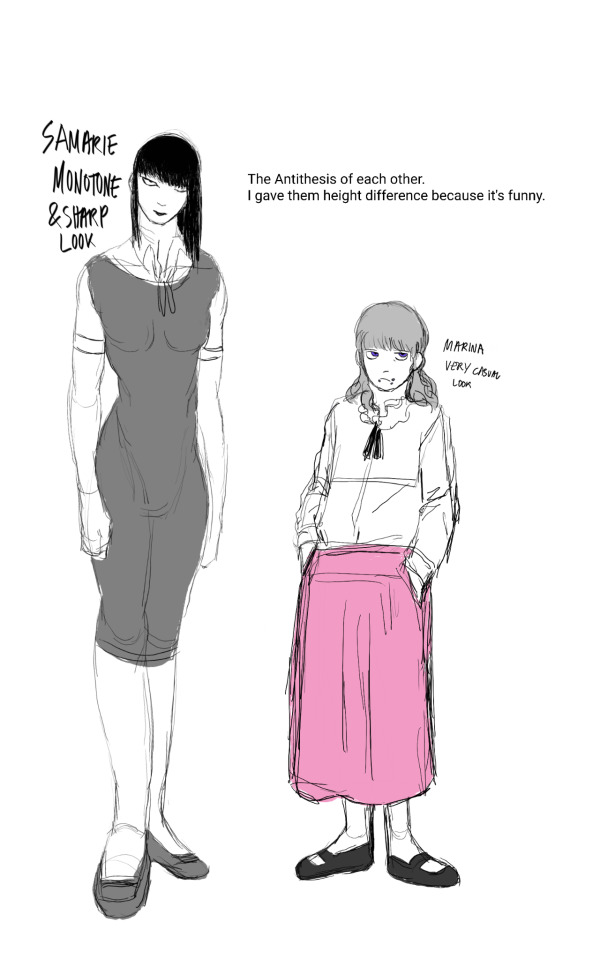
#fear and hunger termina#fear and hunger samarie#fear and hunger marina#i want marina as Grogoroth for comedy
13 notes
·
View notes
Text
Arthur, in one of the earliest episodes: I want to live in a Camelot where the punishment fits the crime.
This is in reference to Gwen apparently using magic to heal her father from the plague.
This is a not-yet twenty year old Arthur fighting for what he thinks is right. Almost in the next episode, Arthur fights for inclusion of Lancelot in the Knights' ranks. The last discussion that Arthur and Uther have on this is something along the lines of 'Lancelot deserves to be a knight because of the honour and courage he has shown. Screw the first code' and Uther being 'I see you feel very strongly about this' before Lancelot barges in to say he is leaving on his own. And I don't know if it's me, but Uther looked close to giving in to Arthur and you can see the respect in his eyes grow when Lancelot says he is leaving.
There are so many instances in the first season itself (going into danger for a servant, trying to be fair even with the constraints Uther set him, defying Uther in ways that he can, caring for every citizen of Camelot) which show Arthur is going to be fair and just King. It's all there. And it does happen to some extent.
The First Code is scrapped. Punishment is fair. No magic user is unjustly punished during Arthur's reign. The Queen is a commoner. Some of the best knights are commoners. And, I like to think, if Arthur had known everything going on in his kingdom and even without it, the major 'repealing of the magic ban' might have happened eventually. And, all this is after Arthur personally has almost never had any good contact with magic where he knows it's being used for good.
That is why Arthur is a great King even if it's not highlighted so much in the show. Because when you compare Season 1 and Season 4 (ie Uther and Arthur), you see the difference in the way Camelot works. You see not any and every sorcerer attacking Camelot except Morgana and she has a personal vendetta. There is no Edwin or Mary Collins or even Nimueh, who are all hell-bent on revenge or trying to justify their acts as bringing magic back to Camelot. There is only Morgana who has got a personal stake in this and the agenda of bringing magic is long gone and only the throne apparently being rightfully hers is the reason for her continued attacks. You see people not only listening to the King but also discussing with him. You see people following the King out of respect and love instead of fear. That is the Camelot that Arthur wanted among other things.
Arthur, getting Camelot to where it was at the end of Season 5 even when left with the residual hate from Uther's reign is a huge thing. Of course I wish I would have been able to see more and I wish it would have been highlighted more but there are changes. There are great changes and Arthur ultimately did become a great King even with having Uther as a father and it's so underrated sometimes.
#bbc merlin#arthur pendragon#merlin#uther pendragon#i think i should start a series for all the metas i write about arthur lol#the once and future king#arthur and merlin both deserved better#and not at the cost of each other#i will fight you on this
29 notes
·
View notes
Text
Two Cups of Tea - post Mag 200
Spoilers ovbiously. This is the first draft 🌟 this is a short lil story I wrote at work lol
~~~~~~
As the dust settled on the world renewed, everyone found their places again and went about their business. Many people who survived the "end of the world", as it had been referred to, found their way into new careers. Many took their survival as a new lease on life. But others fell back into their lives prior, and somehow, this applied to some of the old staff of the Magnus institute. One of which, was Martin Blackwood. When asked, he would say he originally feared returning, but that Jon was able to convince him, and he loved spending time with his partner, of course, even if it meant returning to the Magnus Institute.
Of course, it was no longer called the Magnus Institute. In fact, now it was a government owned facility. It housed many section 31 officers, who shared the space with those employed for the study of the paranormal. It was not yet renamed, but if you referred to it as the Magnus Institute, you would get a scowl in response. The government was not too happy about what the institute had done to the world. Most people just called it the institute.
It was surprising that, among others associated, Martin Blackwood was still so interested in the archives. After being convinced, Martin disregarded how odd it was, as it gave him some semblence of normality. He enjoyed popping into Jons old, dusty office, bringing paperwork to add to the piles stacking up there while they reorganized the place. It felt so familiar to just... fall back into his old life. Except now, he had his soul mate, and nothing would ever allow Martin to lose Jon now. Martin was fiercely devoted, and fiercly in love.
Martin would close himself in the room sometimes to chat with Jon, when he was particularly struggling. Sometimes Georgie, who had picked up a job there in the aftermath, would pause when she heard his voice behind the door and sigh in disdain. Sometimes she considered opening the door, but she felt so bad for all he had gone through, and did not want to stop his venting. She knew they needed each other. She was unsure when Martin would ever want to move on from the chaos that had traumatized him, and she was in no rush to barge in and stop their trauma bonding.
Martin would come into the break room and chat with everyone, ask how Melanie was doing, get to know the new folk - and sometimes when he left he would leave with a second cup of tea to bring to Jon.
"Does he like tea?" Basira would ask on occasion, which would usually result in immediate scowls from her peers.
"I think its growing on him," Martin chimed with a wide smile, "and plus, if he doesn't drink it, I will!"
And when he would leave, Georgie would sigh deeply and shake her head. Someday, they'll talk.
Martin would add to the stacks on Jons desk, being tasked by his peers to bring old statements to be filed away. He would sometimes wonder why the statements were still necessary, but they needed to be kept "just in case", according to Georgie. At night, she would often ask him if he wanted to come over for dinner, to help him clear his mind with company.
Often, he would say he was going out for drinks with Jon, or that he was staying late to keep Jon company. Georgie would want to protest, because Martin needed a life outside of work - but Martin would just smile cheerily and say his goodbyes.
Martin would say his goodbyes, and go to the bar, or go home, or even sometimes fall asleep in the armchair in that dusty old office. He never minded waiting for Jon to clock out, Martin would say. He would return the next day, all the same. Martin would continue to add to the stacks while Jon promised him he would have them organized soon. Maybe he would help one day, Martin thought as he added to the stack - but Jon had his systems, and Martin would not want to distract.
One day there was arguing ouside the office about space - the sectioned officers needed more of their own office space, but Georgie begged them to not use Jon's office. It was the last memory Martin had of what life was like before - she would win the argument this time, but she knew someday soon, she would lose. She watched Martin poke his head out of the room and ask if everything was ok, and Georgie said it was - for now - and Martin smiled and nodded.
"Okay - it was just loud, and Jon is focusing on a recording. It stressed him out a bit, and you know how much work he has to do still!"
Georgie smiled meekly and watched Martin recede back into the empty office, alone, and close the door - and she listened to Martin talk to no one, laughing and drinking lukewarm tea, as he sat across from the empty chair of a dead man.
#tma fanfiction#the magnus archives fanfic#the magnus archives#post mag 200#alternate ending tma#jonmartin#jonathan sims#martin blackwood#just to really hit it where it hurts ya know#magnuspod#the magnus institute#tma#tma jon#tma martin#the magnus universe#magnus archives#mag 200#magpod
3 notes
·
View notes
Text
zelda and mipha are interesting foils not because of their relationships with link, but just as princesses living on in the memory of their people. all of zelda’s accomplishments in her lifetime, her curiosity and her compassion, are completely overshadowed by her inability to access her powers. she fears her perception across hyrule is that she is a failure. her father reinforces this by forbidding her to do anything that isn’t mastering the skill that will defeat ganon, which absolutely no one can tell her how to do.
meanwhile, mipha is lauded among the zora for her bravery and her skill with the spear. she’s remembered as a prodigy, their kind-hearted princess who was martyred trying to stop the calamity. she’s so beloved her father even hopes that she was simply trapped in ruta, still alive and able to be rescued, rather than killed.
mipha’s family and friends mourn her into the present of botw. they erect a statue of her. her loss is as fresh as when it first happened. she has not yet passed into legend.
very few people alive remember meeting zelda, in part because hylians don’t have as long a lifespan as the zora, and also because she worked so much on her training she didn’t interact as much with her people. traveling around in botw, she is most often referred to as the princess, sometimes a beautiful one. many people feel indebted to her for fighting the calamity, but they don’t know her. she’s a vague idea people have, a historical figure they can put away in their minds.
except there’s link. he doesn’t remember zelda at first, but he can free her. she’s not dead! she’s still fighting. she’s /alive/.
in totk, so many people know zelda! she’s been traveling hyrule to help rebuild. she gardens. she teaches. people describe her as compassionate because they have experienced it firsthand instead of from their textbooks.
and there’s a lesson here about how important it is to live. mipha is adored, but her spirit was laid to rest. she piloted ruta and completed her duty. the zora no longer have any questions about her death. she is at peace, and life can go on.
zelda, in surviving, can keep building her legacy. she can tell new stories, experience new discoveries, make new connections. the princess of the old stories is being rewritten every day into the neighbor, the teacher, the princess of today.
no matter how great the sacrifice, how loved you are at death, it’s in living you have the most power.
3 notes
·
View notes
Text
Blog post #6: Memory and Survival in Rivers Solomon’s The Deep
Having been consistently fascinated by works of Afrofuturism, I sought out more only to discover The Deep, an Afrofuturist novel by Rivers Solomon. The novel is based on a song also entitled The Deep by the group Clipping. Rivers Solomon took the story embedded within this song and turned it into a truly remarkable novel. This in itself felt meaningful to me, considering how many centuries of historical and cultural memories of African Americans followed the same trajectory—being passed down in song, before eventually being recorded and written down.
Both the song and the novel tell the story of mermaids who are the descendants of African women who were pregnant, enslaved, and thrown overboard where they gave birth to babies who breathed the water, as they did in the womb, who adjusted to their new surroundings and made a beautiful life in the deep waters of the ocean in their society of Wajinru. After so much time, though, that history has been forgotten by everyone, well, everyone except for Yetu—she alone has been chosen to be the new historian, the one charged with remembering on behalf of everyone. The memories, you see, are just too traumatic, too hard and ugly, and so survival (they thought) required forgetting. Yetu thinks differently, though. She believes that survival of her people requires them to remember, to reclaim their memories (traumatic as they are) because that is the only way to reclaim their identities.
This story captures so much of the African American experience in so many layered ways. First, the obvious ones. The Mer people live in the deep ocean, separated from the world above water—this, to me, seemed to be a metaphor for the marginalization of African Americans, specifically in terms of residential segregation and geographic isolation in dense urban areas. Then there is the idea of adaptation, survival, and the Mer peoples’ ability to adapt to a new environment mirrors African Americans' adaptability to the white dominated culture they were thrown into and not just survived, but thrived within. Most importantly, though, is the role of cultural memory and the question of whether forgetting or remembering is the best tactic for survival, and in this book it seems Rivers Solomon is suggesting that African Americans (or all descendants of enslaved peoples, not just those in the U.S. alone) have been ignoring the most difficult parts of their history when, in reality, an awakening to selfhood and identity requires knowing the past, even the ugliest and hardest parts of it. The historian before Yetu, named Zoti, explained why there is only one historian, only one among the wajinru tasked with remembering the past: “I fear if they know the truth of everything, they will not be able to carry on, or they’ll swim to the surface to learn things for themselves that I do not want them to learn” (p. 63). However, as Yetu’s experience shows us, the burden of remembering is too much for just one person alone to bear—and it is far healthier for Yetu herself and for the entire community when they all remember collectively and, in that memory, they find peace. This book is about inequality and the legacy of colonialism, but it is also about how (or, whether) we talk about, recognize, and cope with that legacy in the present day.
Reference:
Solomon, Rivers, Daveed Diggs, William Hutson, and Jonathan Snipes. 2019. The Deep. New York: Hodder & Stoughton.
0 notes
Text
HIS VOLUME IN STILLNESS
“Be still, and know that I am God;I will be exalted among the nations, I will be exalted in the earth!” – Psalm 46:10
How many of you know there’s a VOLUME to the quiet? Maybe you’ve heard the statement, “The silence was deafening.” Of course, that’s usually in reference to a noticeable volume ceasing and giving rise to silence. Have you noticed how we tend to have selective hearing in whatever direction our heart is aimed for our own interests, pleasures, pressures, fears, etc.? Whichever is in greatest want or need has the priority of volume heard.
My wife, praying one morning before church, asked that “the Lord’s voice would be magnified in our gathering of the saints.” I understood that to simply mean there’d be a hearing of the Lord above all else with which we could be occupied. With that in mind, I felt the Lord drop a note of His own to me, “I’m always able to be louder than the commotion that’s going on in your lives that you’re listening to; the endless array of things that can pull against the concentration you might have toward Me.” To this, I heartily agreed that He would raise His voice! Then came, “Better yet! Oh, that My people would live in the still long enough for the volume of My preeminence to be exalted over anything else in their lives.”
I heard that! So much for His voice being raised, but what about every other voice in me being stilled?! That’s only found in our willingness to STOP giving significance to the volume of everything else. “In the beginning was God,” above and beyond all that was created! He was the Maker, the Originator of all and “for of Him and through Him and to Him are all things.” In other words, everything works as it was meant to in perfect harmony in Him being Supreme, the First, the Highest… He must be the Attended-to-One in preeminence for us to know the flow that is above the fray of this fallen world as “a river whose streams shall make glad the city of God” (Ps.46:4).
Again, the directive given to all who live in the fray: BE STILL AND KNOW (have the certainty) THAT I AM GOD. Let ME be EXALTED over men, among nations, and especially in your EARTH.
Consider for a moment the phrase, “The squeaky wheel gets the grease.” However trite it may seem, those raucous wheels wear upon our hearing wanting the place of precedence, primacy and import in all we think and do. Unfortunately, we many times allow them to weigh against our faith that comes from hearing God unless we change our priority. How about “Seek first the kingdom of God and His righteousness, and all these [other] things shall be added to you”? Gain comes from having ears to hear Him.
Have we gotten to the place where we just can’t take the self-induced volume we allow? Are we weary of those discordant voices of distraction and detraction that can lead deceitfully to defection from the faith? Believing better things of us all, let’s get to the place where our soul hungers for the Lord’s voice to be exalted over the affairs of our lives. Let’s begin the day with EXALTING HIM TO HAVE THE VOLUME that establishes His rule over our hearts and minds before the world can wake with its commotion and conflict. Note the play on words and do as David sang, “When I awake, I am still with You” (Ps.139:18).
Elijah knew that place of submission to God’s sovereign rule over men, even nations. He gave the Lord that exalted place of priority in his life. And with that, God’s STILL SMALL VOICE was the reigning volume over the volume of all else. The Strong Wind, Earthquake and Fire were mere background noise – they had no governance over what had become the presiding volume in Elijah. Are we moved when the nations rage? She shall not be moved who has God in the midst of her. Let Him utter His voice! (Ps.46:5-6).
The frequency of focusing on His voice in my life makes for familiarity with the frequency from which He speaks. Does this ring true? Have I exalted Him in my hearing to live “by every word that proceeds from the mouth of God?” Noise reduction happens effortlessly when we pick up, amplify and reverberate the brilliance of His voice who is exalted on High. Be still and know!
– DSC

0 notes
Text

Elias Jameson hails from the Kingdom of Toullon, which is situated to the south off Estoriia, near Ubonia. When he was eight years old, a group of bandits from Ubonia murdered his parents just because they were magick-users. Elias was able to escape, but the image of his parents being slain before him still haunts him to this day.
With knowledge taught to him by his parents, he was able to survive on his own with the help of his fellow magick-users. Toullon is very much known for its sense of community. However, after losing his parents, Elias became obsessed with death. It was such a traumatic experience for him that he became convinced that there had to be a way to bring them back.
When he was visiting the marketplace one day, he overheard people whispering about a new book that had been published about the subject of necromancy. They spoke about it with curiosity, but also with some fear. Despite Toullon being a kingdom filled with magick-users, most won’t go near dark magick. Elias wasn’t quite as afraid and decided to dedicate himself to learning all he could about necromancy in the hopes that he would one day see his parents again.
As the years went on and his understanding of dark magick grew, he was able to raise animals from the dead. With more practice and research, this expanded to raising humans from the dead. It took a lot of work, but one day he managed to raise a body from the local cemetery. However, it was disturbing and didn’t act the way any human should. The reanimated corpse only lasted about an hour before it disintegrated, but it was progress and Elias was happy.
From that point on, he continued to work hard and was eventually able to raise more corpses for longer stretches of time. Some would even utter words to him, recounting how they died. Despite his increase in skill level, he has grown nervous over raising his parents from the dead. After seeing how strange corpses can act (with many even trying to attack any living being it senses) Elias became afraid that his parents would react the same way. He started to wonder if it would be best to let them rest in peace rather than disturb them for his own selfish wishes.
Among his research, Elias has been looking into ways of possibly re-animating himself if he was ever killed by Ubonia’s army. Even after finally deciding that he will abandon his original wish of seeing his parents again, Elias remains incredibly interested in the art of necromancy and hopes to one day use his skills for good.
One day, he and his best friend Adaline Caldwell (a witch) escape Toullon after Ubonia’s forces invade. They flee North and ask for shelter in Estoriia in exchange for their services. Safiyah grants them their wish, giving them a place within her castle. Adaline becomes the Court Physician who makes healing potions and uses spells to care for Estoriia’s forces. She also assists Safiyah in general duties.
Elias is Estoriia’s secret weapon. However, due to being a necromancer, which is something that is heavily frowned upon by all kingdoms, his true abilities are kept hidden. He is formally known as the Court Mortician who deals with soldiers that fall in battle. He is also sometimes referred to as “Adaline’s assistant” as many don’t even like to discuss the duties of a mortician. He is the most dangerous of them all. Due to his position as Court Mortician, Elias has access to bodies that go unclaimed by families. He also researches ancient scrolls and often travels to places of interest to uncover more knowledge about dark magick. He is working on being proficient in raising an army of the dead should Estoriia ever be invaded by enemies.
More info about the kingdoms can be found HERE.
The effects of necromancy can be found HERE.
1 note
·
View note
Text
Saying Goodbye to Mr. Downing
This post contains references to funereal practices.
Yesterday, we said goodbye to my beloved best friend and husband, Patrick. Well, his vessel, I suppose. My Love is right where he’s always lived, tucked just here, in my heart.
I come from no religious background because my mother was and is such a hippie—she would never make such an important choice for a sentient being! I can actually see the offended look on her face at the very idea right now.
So, when it comes to death I’ve kinda had to wing it. I’ve lost quite a few close relatives and dear friends over the years, so this was my sixth cremation and fourth where I was responsible for the details. I used to make some pretty dark jokes about this trend.
Now, though, I see that I was being prepared. I knew what I needed to do to feel I’d fulfilled the primal need to honor, cherish, embrace the enormity of the loss and the change. Obviously, this time is … indescribable, but how I wanted to try to capture just a bit of our magic came to me swiftly.
When Mr. Downing and I would talk about what each of us wanted after death, all he would ever say was some variation of, “Cremation, the rest is whatever you need, baby.”
Thus, I painted my wedding vows to him on a muslin shroud; it was a long process and gave me many hours to consider the words I’d said 17 years ago. Finding that I’d fulfilled every vow, every day for all of our life together is a kind of completion I don’t think I knew existed. While I worked, it felt old, sacred, as if I was inscribing ancient, holy things.

When it was time, I shrouded him and placed a few items from me and letters from family. I chose to send him with his favorite book, an awful, lopsided scarf I’d knitted him 20 years ago that he would wear with pride, *whisper* a pair of my panties, and a dictionary. Why a dictionary? While we were dating, I’d given it to him with the note, “I can never find the words to express how much I love you, so I thought I’d give you all of them.” I can’t find the words for losing him, either, so I figured I should send it with him in a valiant second attempt to express that which defies expression.
The few people who I’d asked to be there helped me place 10 dozen blooms around him so that he was cradled with love and beauty. Then they left the room so that I could be alone with him for the last time, from a certain point of view. I read him the words his friends and family had sent from afar (and grumbled that they’d shaved off his lovely beard).
I told him every day how much I love him, but I figured a few more times would be okay.
Patrick always enjoyed brushing my hair, so it felt right to send that with him, as well. I cut off my braid, placed it over his hands, and kissed him goodbye.
I watched them begin the cremation process and then it was time to go. We said thank you to the person who’d assisted through the steps (amusingly enough named ‘Ren’) and walked out into the bright morning sun.
Among the agony, the fear, the sorrow, the despair, there is now a healing ribbon of peace wound through it all. There was nothing left unsaid or unresolved between us. I have no regrets. It’s a pure grief, I suppose.
Thank you for reading this. I’m grateful to be able to share an accounting of this fixed point in my life.
Please be especially good to your loves today, for me and for Mr. Downing
106 notes
·
View notes